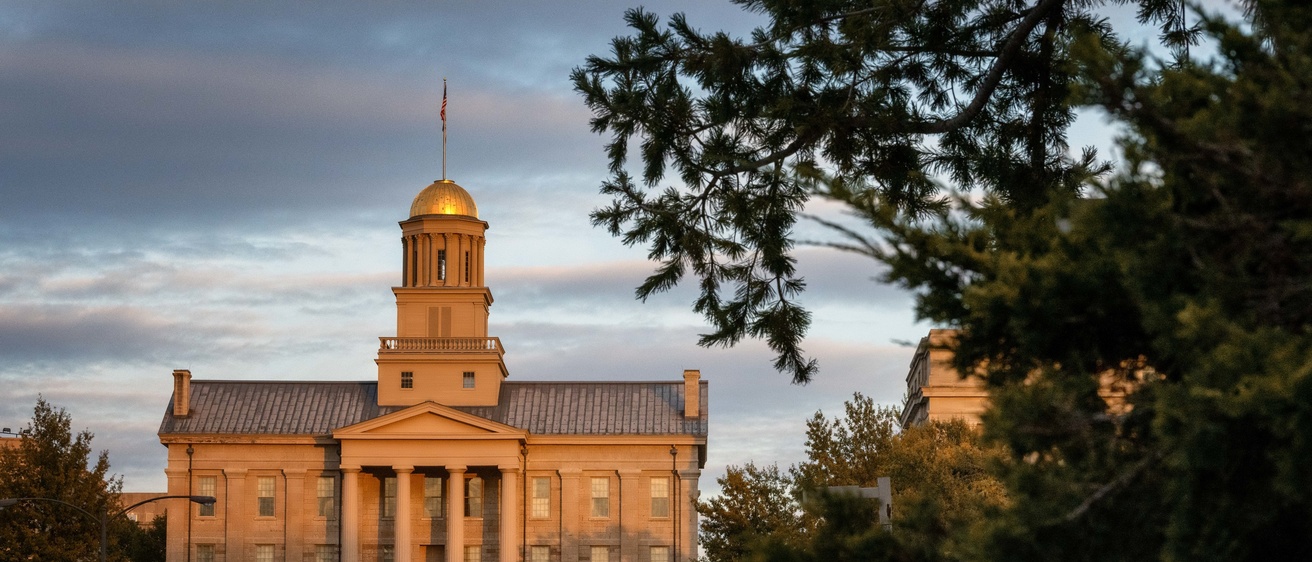The legacy building a welcoming and respectful experience at the University of Iowa
The University of Iowa has a rich history of pioneering programs and policies that reduce obstacles in higher education. We are dedicated to continuing this legacy by actively participating in ongoing endeavors to cultivate a campus community that excels in molding our students into globally competent leaders, through the concerted efforts of our faculty and staff in teaching, research, and services.
Our Division of Access, Opportunity, and Diversity's central office and the wider campus are home to both promising and proven-successful practices and initiatives. These are led by our highly engaged and motivated faculty, staff, and students who are deeply invested in this mission. Almost every significant program, initiative, and structure that enhances culture, community, and the ability to find common ground at the University of Iowa is rooted in the active and persistent energy of the campus community.
From the establishment of student cultural centers and ethnic studies programs to the creation of employee affinity groups, or the call for a comprehensive assessment of campus climate and the development of transparent action plans, the University of Iowa’s progress is powered by a wide array of insightful, talented, and enthusiastic campus partners and advocates. Their knowledge, skills, and sense of urgency will continue to build upon the university’s legacy and propel it towards even more significant achievements in creating a welcoming and respectful campus that teaches the skills needed to lead a global society and workforce.
Key moments in UI's Legacy to build cultural competency
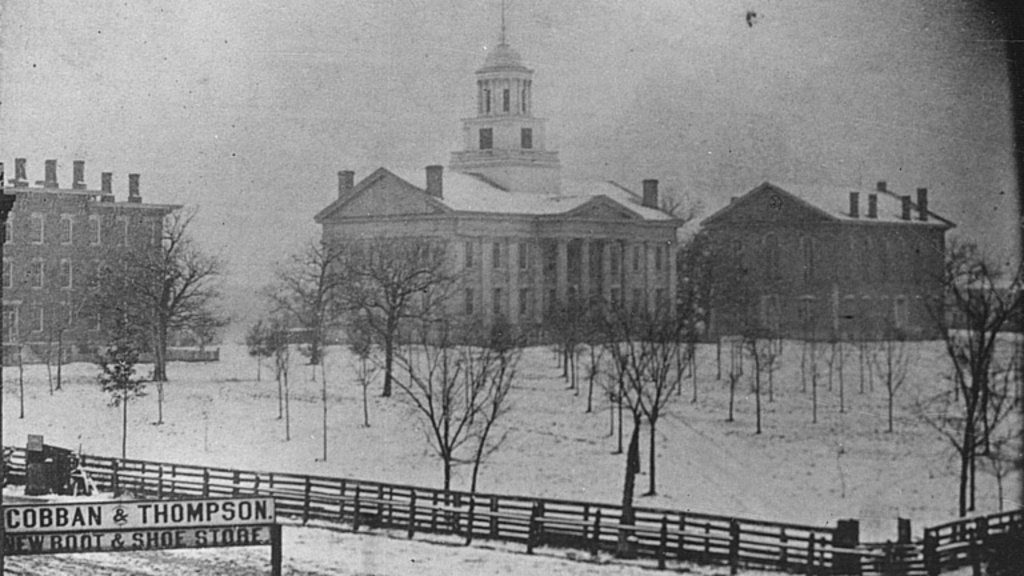
Founding
1847Iowa legislators create the State University of Iowa, the state's first public institution of higher education to provide teacher training for Iowa's growing population.
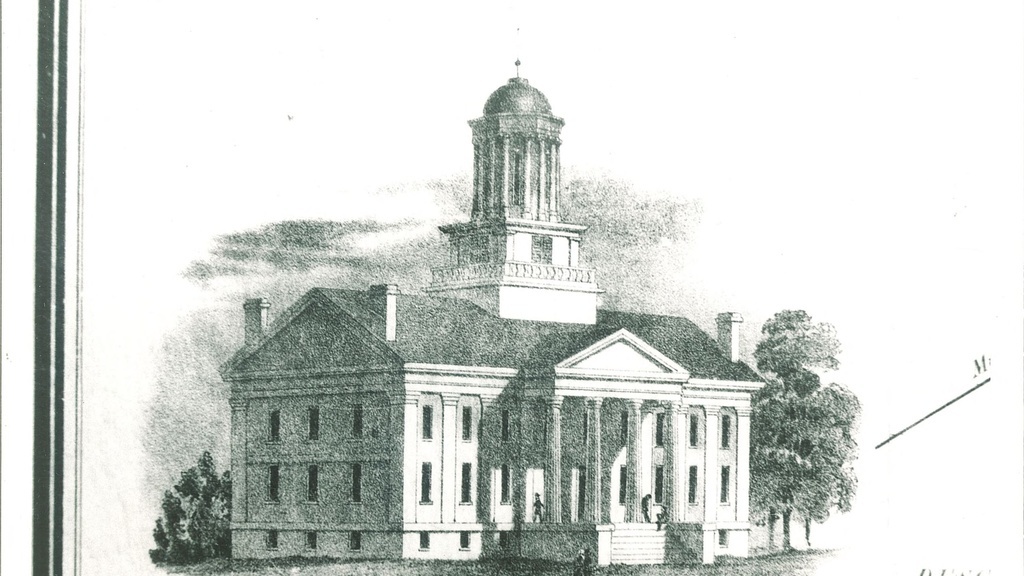
First coed public university
1860The University of Iowa became the first state university in America to admit men and women on an equal basis.
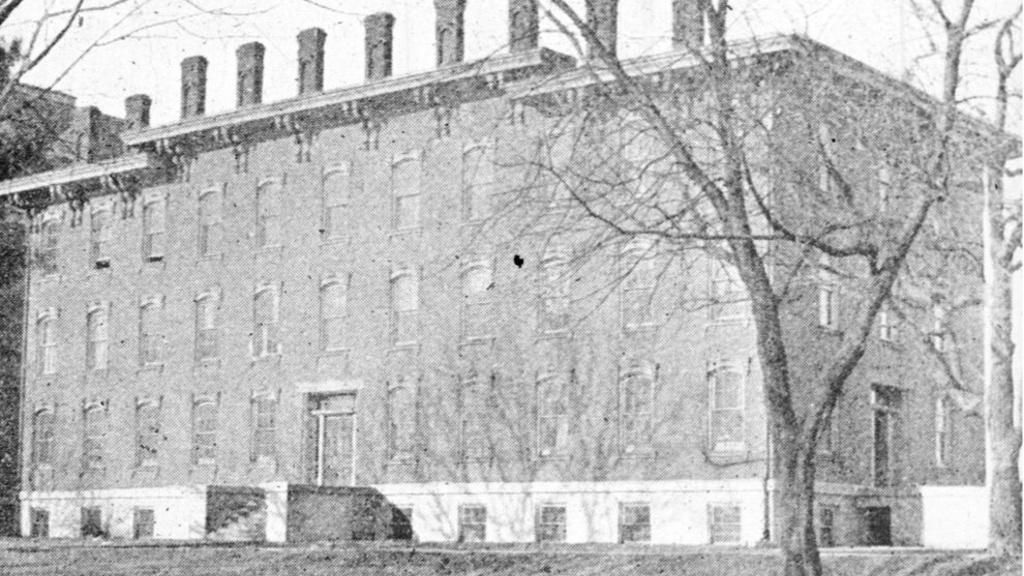
One of the first co-educational medical schools
1870The Medical Department holds its first classes, with 37 total students and 8 women in the first class of students, making Iowa one of the first coeducational medical schools in the nation.
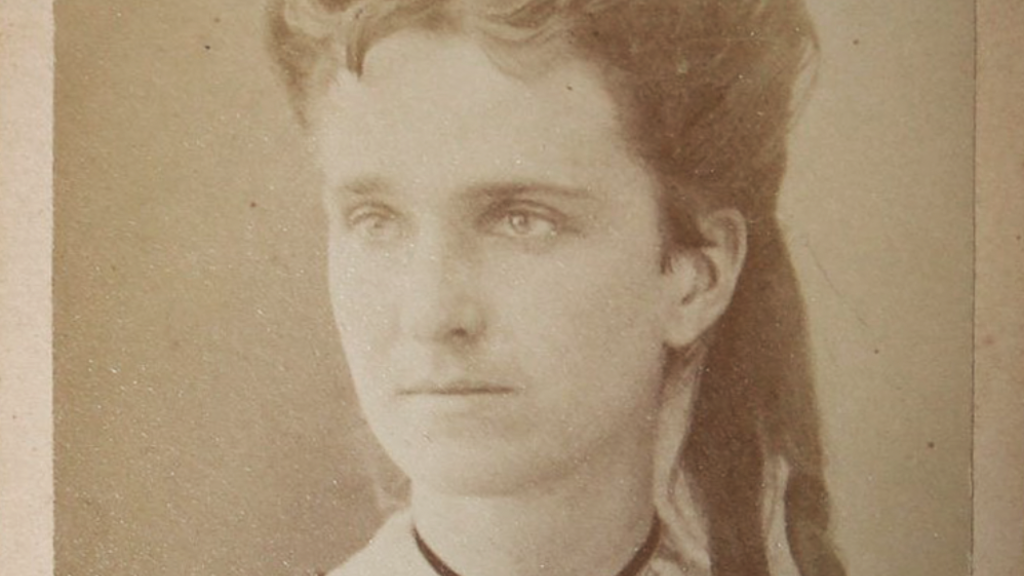
First woman to earn a law degree
1873UI Law alumnus Mary B. Hickey Wilkinson was one of the first women to earn a law degree in America in 1873.
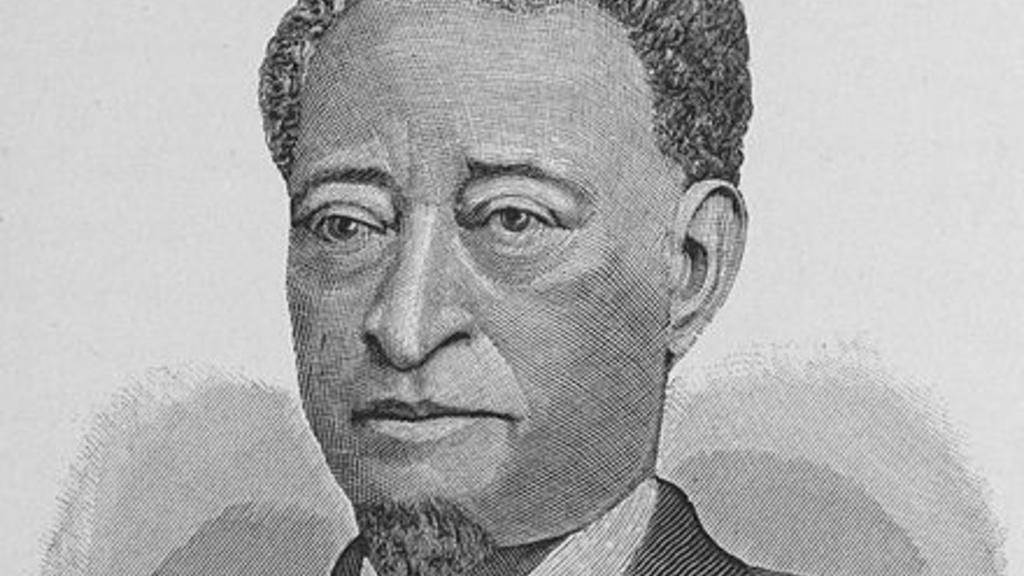
First African-American to earn a law degree and graduate from S.U.I.
18791879 Law Alumnus G. Alexander Clark is believed to be the first African American in the nation to earn a law degree. He was also the first African American to graduate from the University.

First bachelor's and master's thesis written by women
1895The University’s first bachelor’s thesis, “A Brief Description of Nine Species of Hepaticae Found in the Vicinity of Iowa City,” was written by a woman, Mary F. Linder. One year later, Iowa’s first master’s thesis, “The History of the Common Frog,” was also written by a woman, Rose B. Ankeny Edgar.
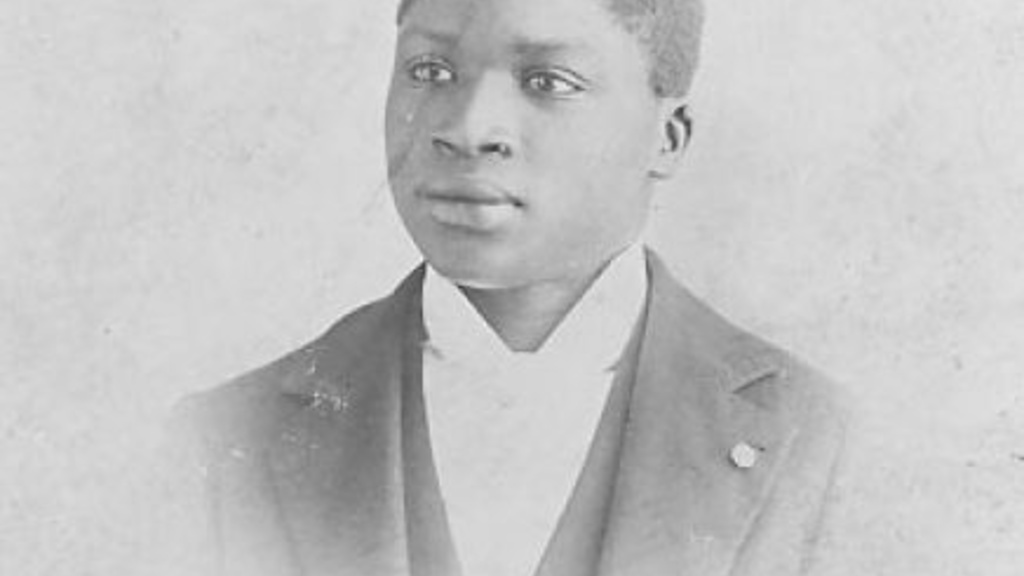
One of the nation's first Black college athletes
1895Football Player, Frank Kinney Holbrook is believed to have been the first African American to compete in varsity athletics and one of the nation’s first black college athletes.
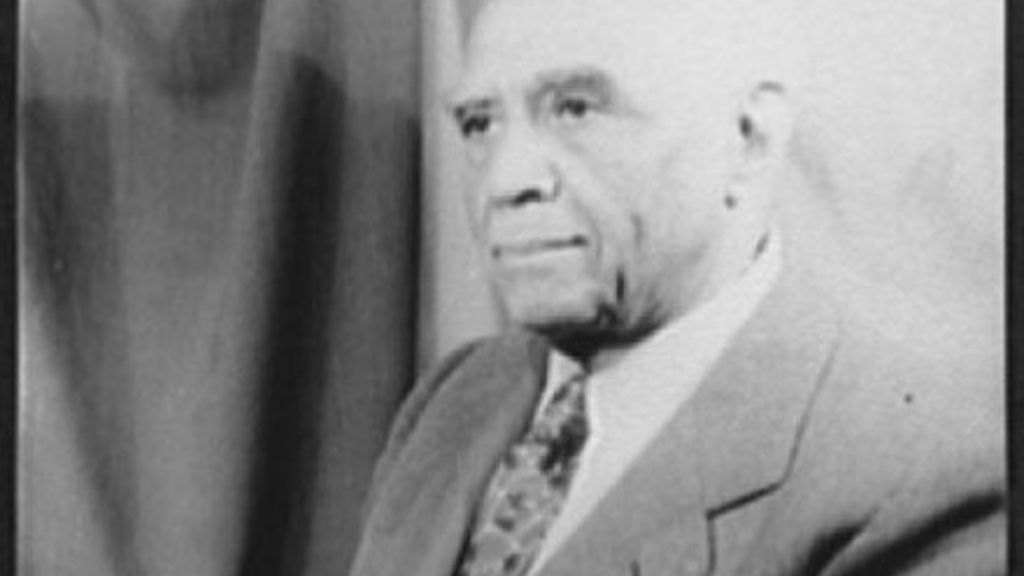
Alumnus founds historically black boarding school
19091907 alumnus Dr. Laurence C. Jones founded the Piney Woods School in Mississippi, one of five historically black boarding schools in the United States, in 1909.
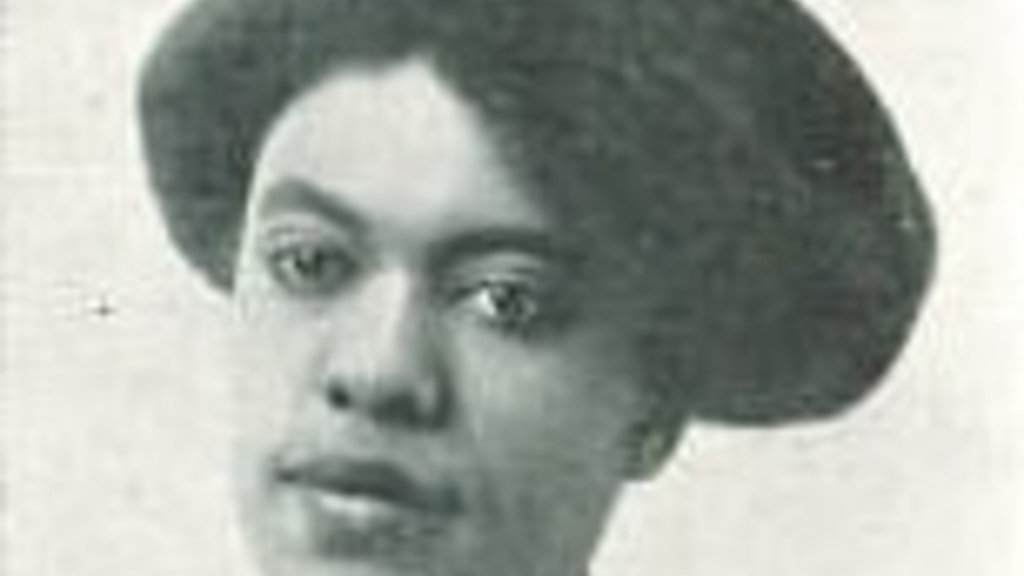
First African American women to graduate from the State University of Iowa
1912The first African American women to graduate from the State University of Iowa were Letta (Cary) Bledsoe and Adah (Hyde) Johnson. Both were from Des Moines and received their degrees from the College of Liberal Arts on July 26. Pictured is Adah (Hyde) Johnson who double-majored in History and English.
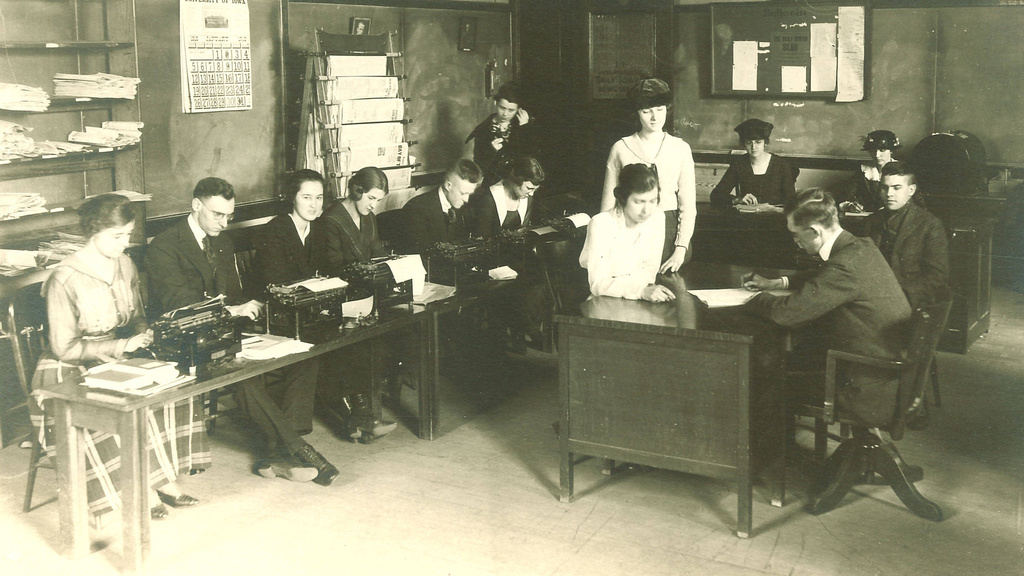
One of the first women to head an American college daily newspaper
1919Mildred Whitcomb became one of the first women to head an American college daily newspaper upon being named editor of The Daily Iowan in 1919.
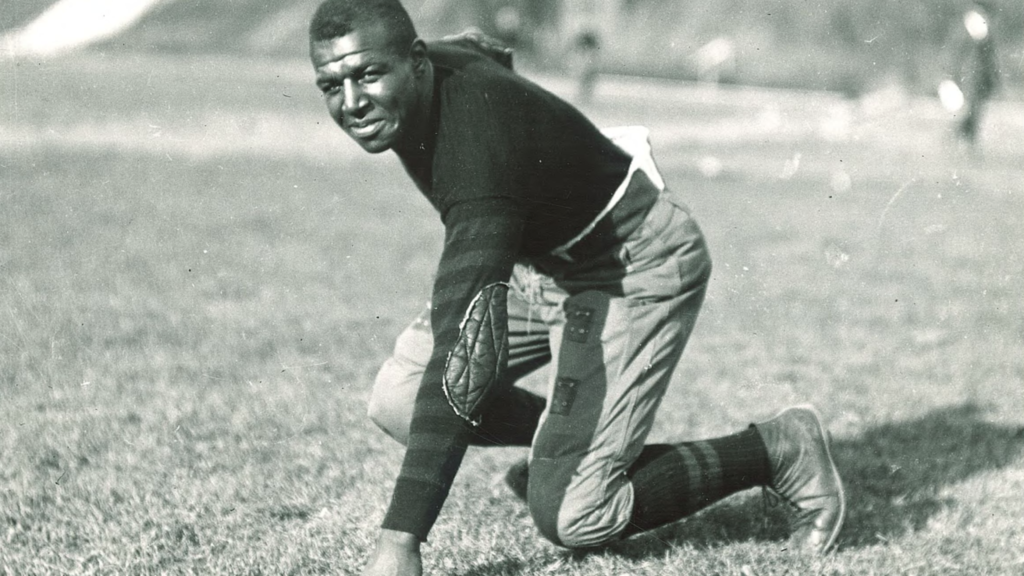
Iowa's first African American All-America football player
1921Frederick W. “Duke” Slater becomes the University's first African American All-America football player and is named to the Chicago Tribune’s All-American football team, 1921. Slater Residence Hall is named after him.
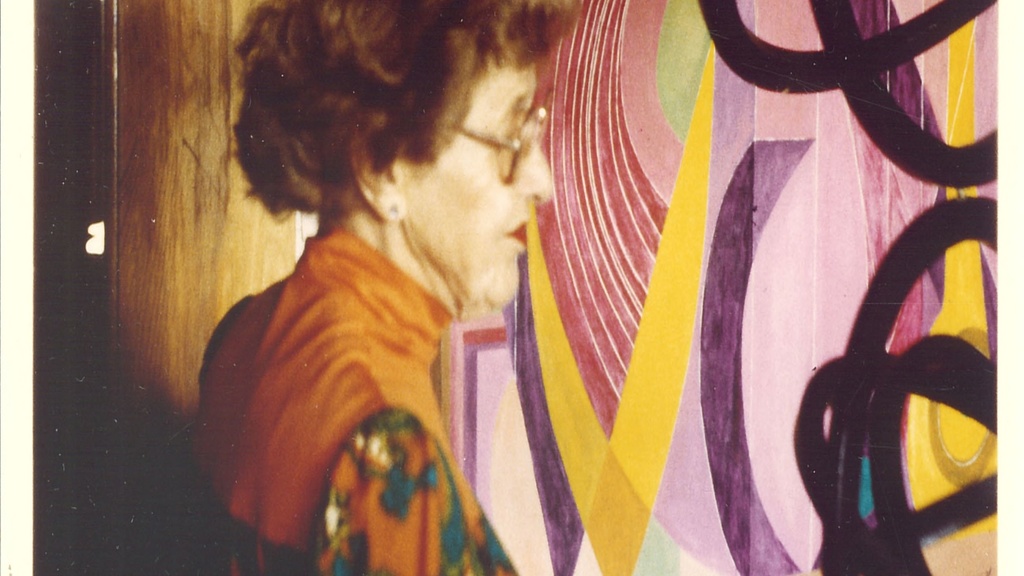
One of first people to receive M.A in painting and art history
1924In 1924, Eve Drewelowe became the first person to receive an MA in art from the University of Iowa. She earned a degree in Graphic and Plastic Arts by studying painting with Charles A. Cumming and art history with Charles Weller. She was one of the first people to receive such a degree in the nation. The University of Iowa would go on in 1940 to create the more advanced degree, the M.F.A., in what was another first in the United States. The program was created after she petitioned the University to establish an MA degree for her course of study.
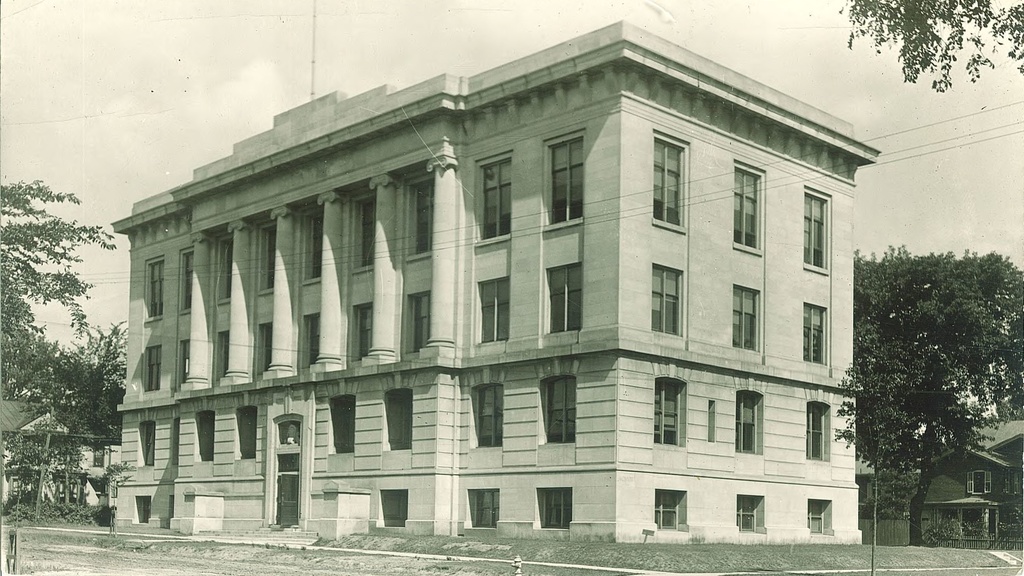
First tax-supported university in the nation to establish a school of religion
1927The University of Iowa became the first tax-supported university in the nation to establish a school of religion in 1927. Iowa was also the first state university to offer a PhD in religion.
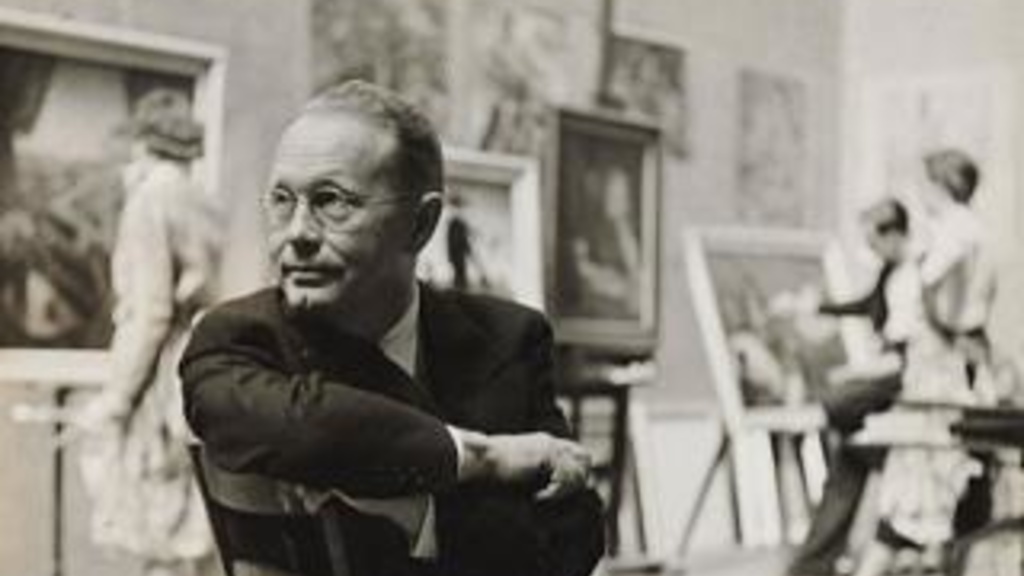
Grant Wood joins University of Iowa faculty
1934Already nationally famous for his painting American Gothic and as a champion of regionalist art, Iowa artist Grant Wood joined the University of Iowa art faculty in what was then called the Department of Graphic and Plastic Arts. Although not openly gay in his lifetime, Wood is now recognized as an important twentieth-century LGBTQ artist. He was also one of the primary professors of African American artist Elizabeth Catlett and she credited him for supporting her efforts to create African American imagery and receive one of the first MFAs in studio art at Iowa.
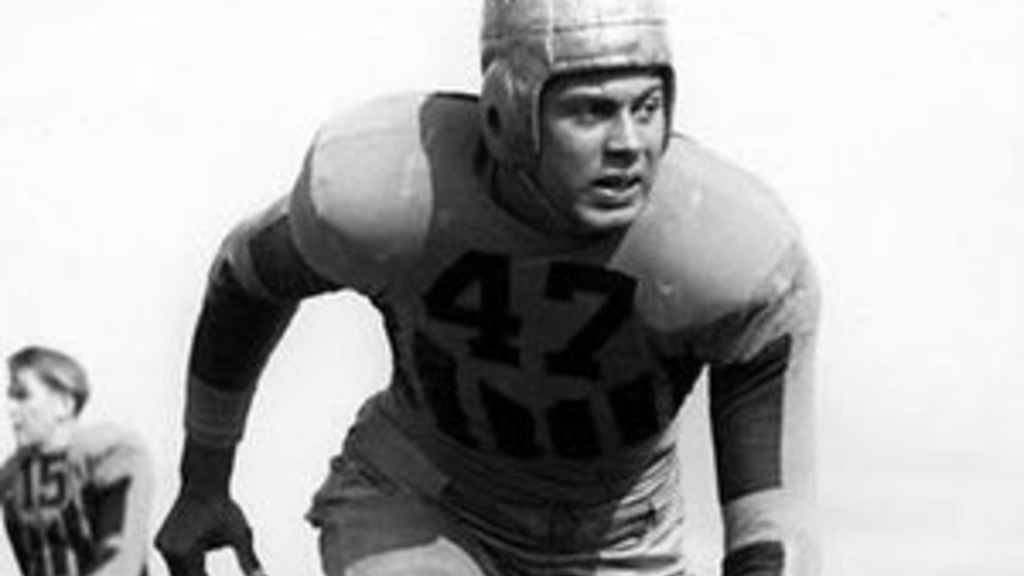
First African American football team captain of a Big Ten team
1937Homer Harris became the university's first African American football team captain of a Big Ten Conference team.
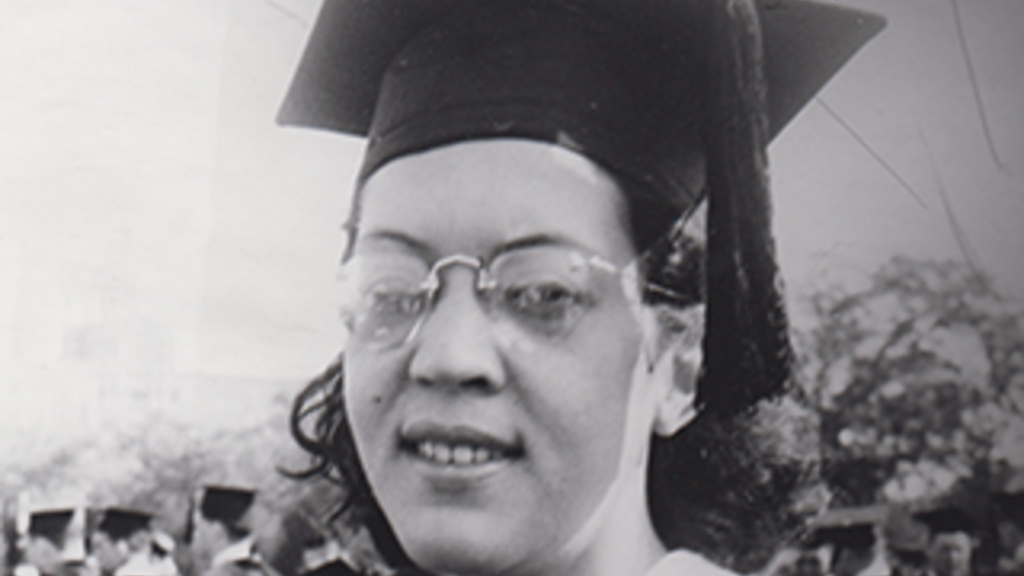
Elizabeth Catlett becomes MFA recipient
1940Elizabeth Catlett, a notable sculptor, printmaker and civil rights advocate, was one of the first three MFA recipients at the University of Iowa and the first African American to earn the degree in 1940. Elizabeth Catlett Residence Hall opened at the university in 2017.
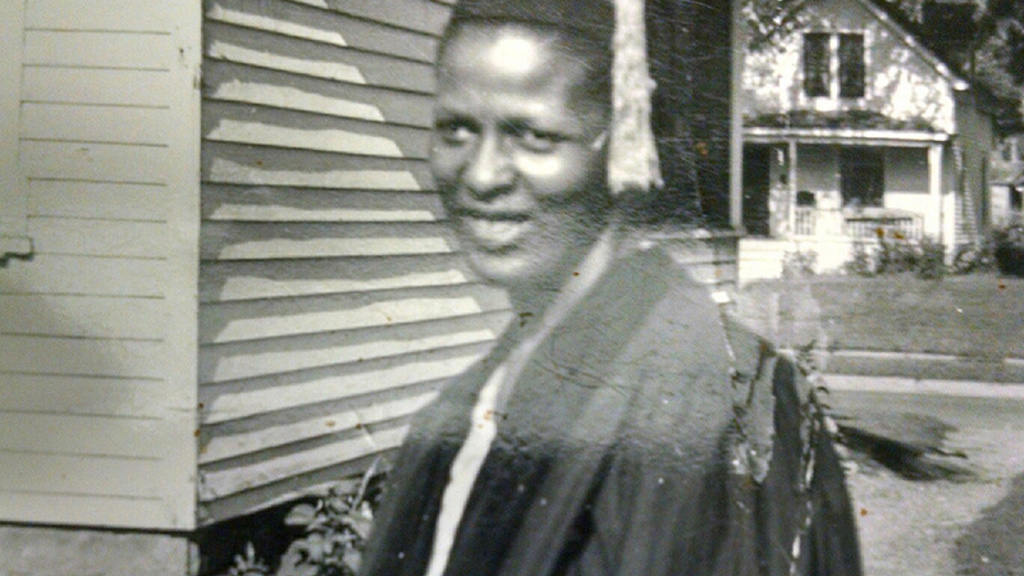
First African American woman to receive a Ph.D. from an Iowa institution
1941Lulu Merle Johnson became the first African-American woman to receive a Ph.D. from an Iowa institution and one of the first African American women in the nation to earn a Ph.D. in history.
In 2020, the Johnson County Board of Supervisors renamed the county after Lulu Merle Johnson. She replaced Richard Mentor Johnson, vice president to Martin Van Buren from 1837 to 1941, who had no connections to Iowa.
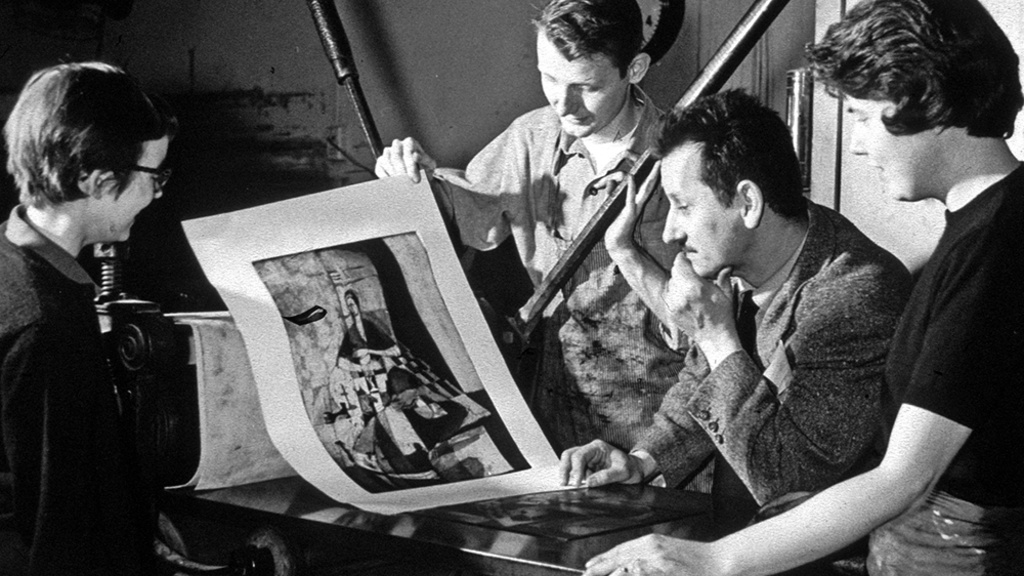
Mauricio Lasansky becomes esteemed graphic artist
1941Mauricio Lasansky, an Argentinian native becomes one of the world's most esteemed graphic artists. He steered the University of Iowa's School of Art & Art History's printmaking program to the top-ranked program in the country.
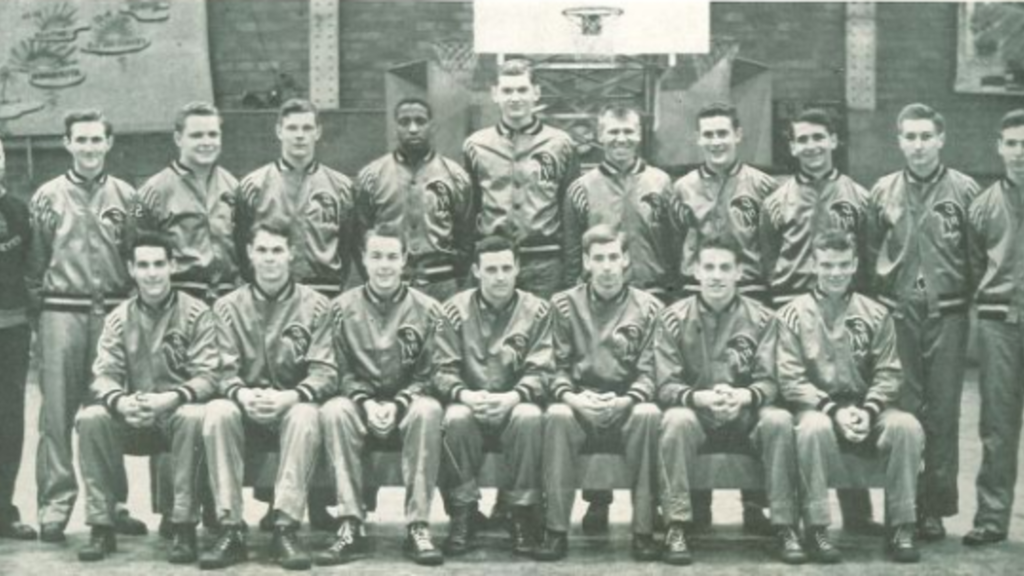
First African-American to play basketball in the Big Ten
1944Iowa’s Dick Culberson is the first African American to see varsity action in a Big Ten basketball game on Dec. 9, 1944, scoring 11 points in a victory over Western Illinois.
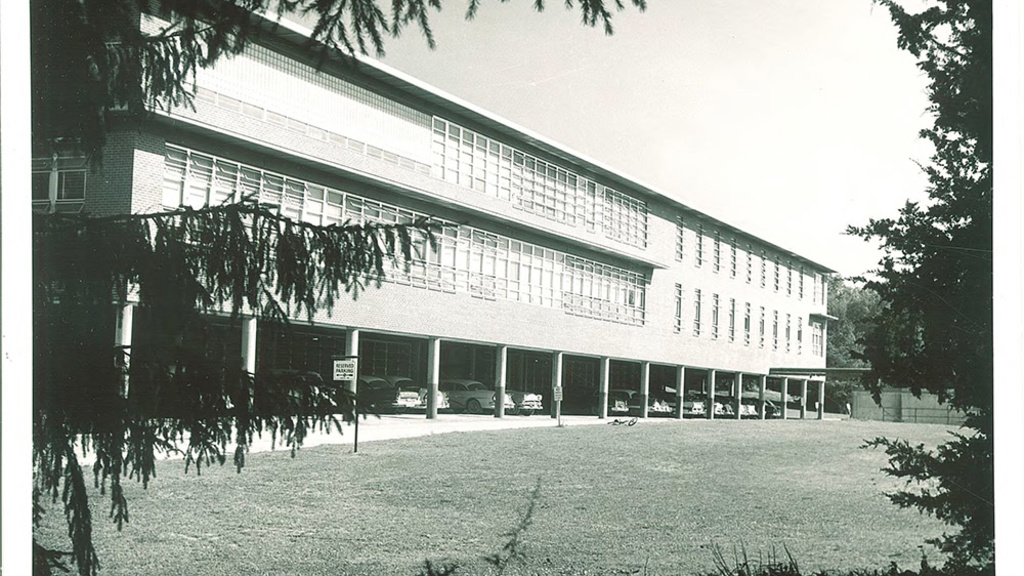
First program on a college campus devoted to rehabilitating children and young adults with disabilities
1947University Hospital School, the first program on a college campus devoted to rehabilitating children and young adults with disabilities, opened its doors to its first 20 patients in 1947.
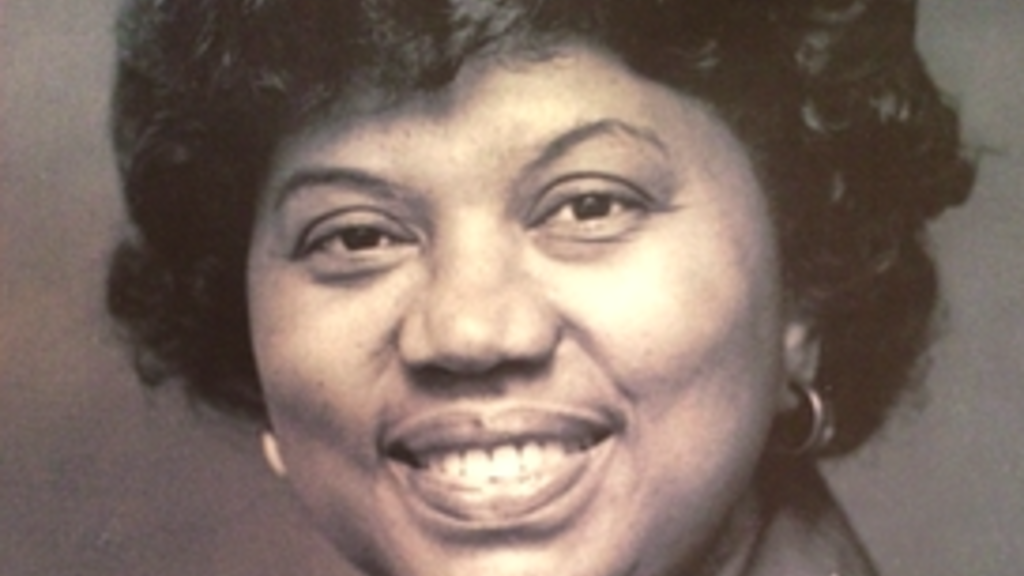
First black woman to receive a doctorate in political science from an American university
1954Iowa Ph.D. recipient Jewel Limar Prestage was the first black woman to receive a doctorate in political science from an American university, in 1954.
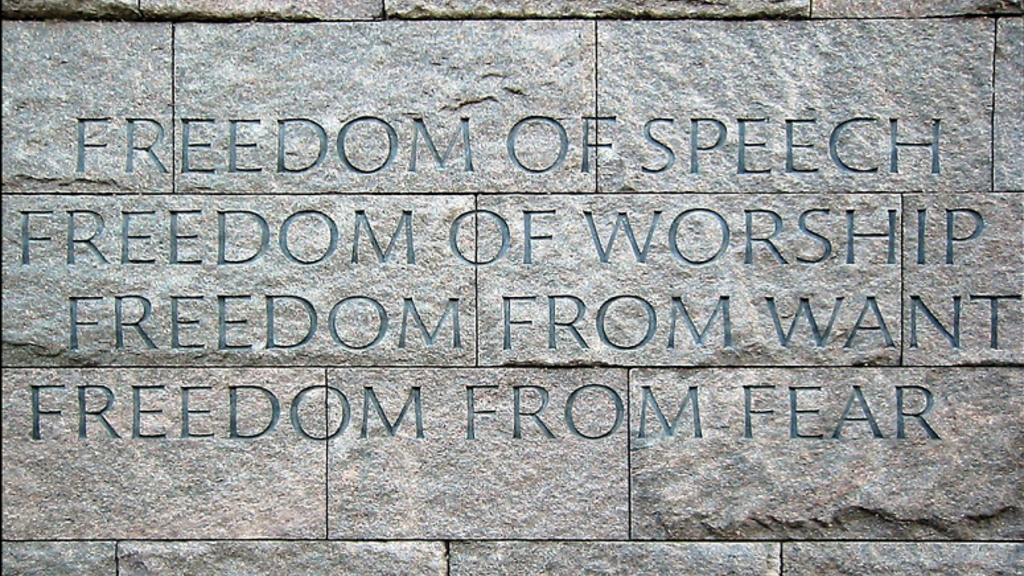
Leader in Human Rights on campus
1963President Virgil Hancher established the University Committee on Human Rights to implement the newly-adopted University Policy on Human Rights set forth in the Code of Student Life.
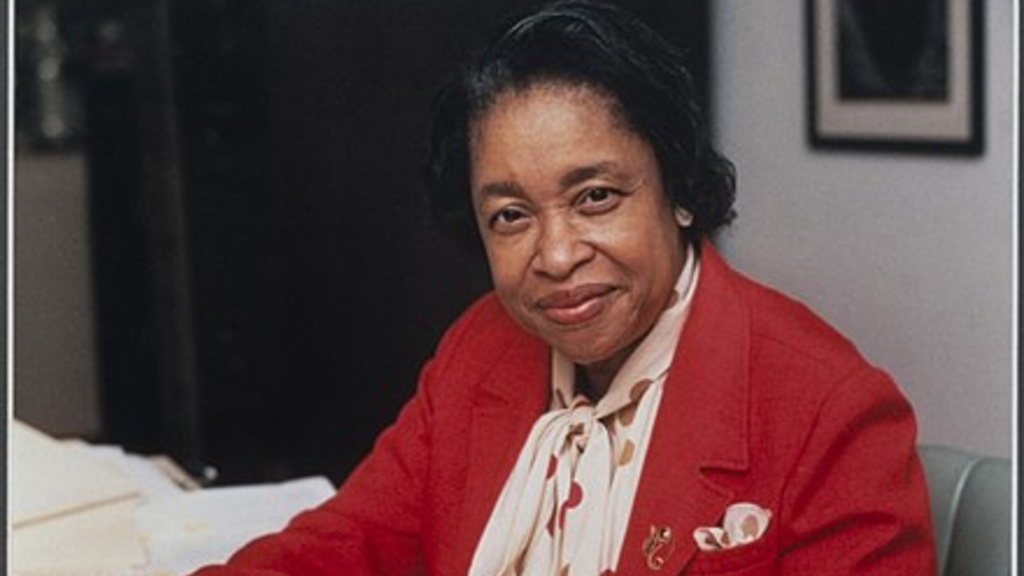
Margaret Walker Alexander completes doctoral dissertation at the University of Iowa
1965Margaret Walker Alexander, a noted African American poet, and activist, completed her doctoral dissertation at the University of Iowa in 1965. It was later published as a Civil War novel titled Jubilee.
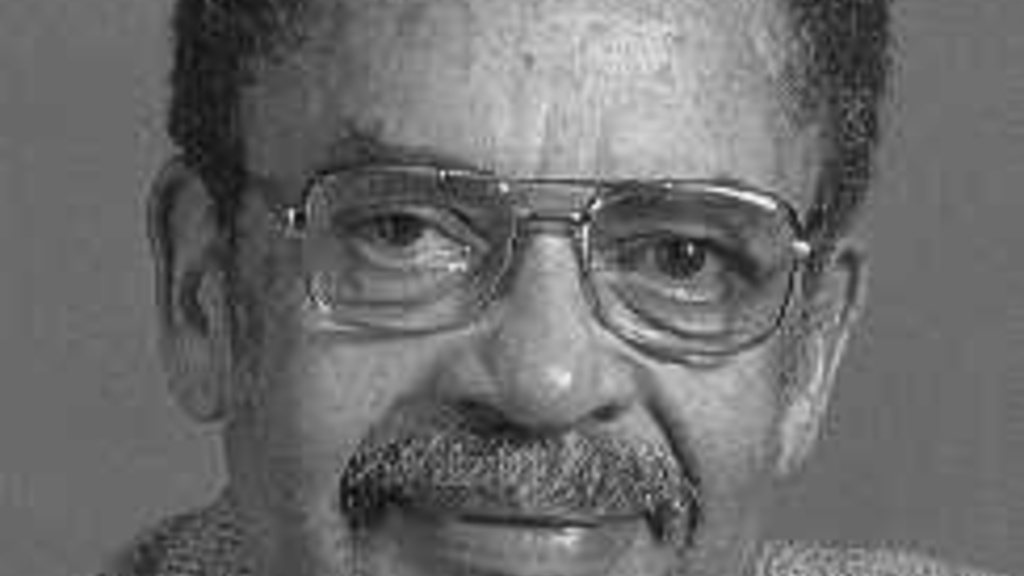
Philip G. Hubbard becomes the first African-American administrator at any of Iowa's three state universities
1966Hubbard was selected to become Dean of Academic Affairs on January 1, 1966, becoming the first Black administrator at any of Iowa's three state universities. He first joined Iowa's faculty in 1947 as a research engineer, becoming the University of Iowa's first African-American faculty member.
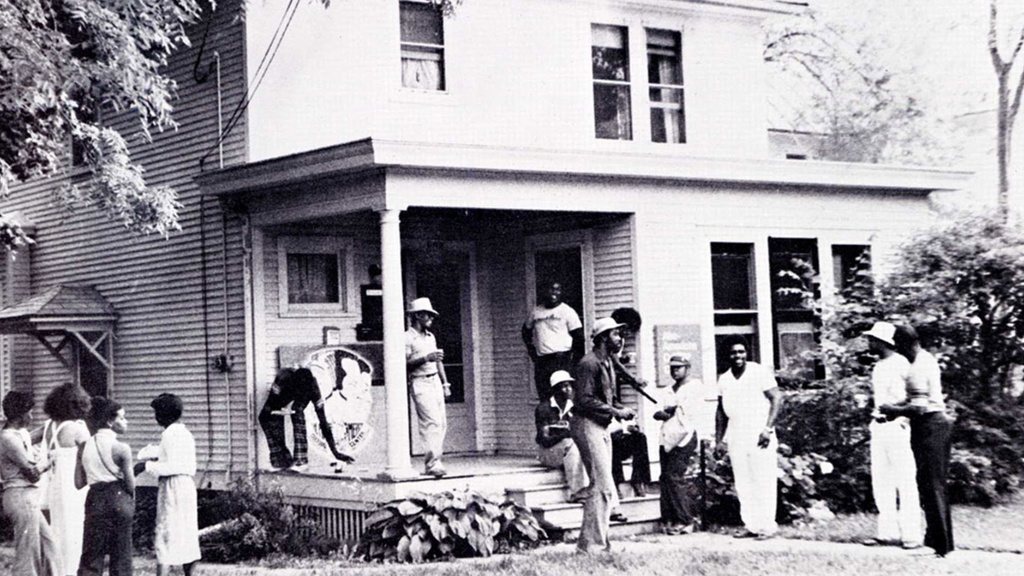
UI Afro-American Cultural Center founded
1968The university’s Committee on Human Rights recommends the establishment of an Afro-American Cultural Center. During Homecoming weekend, Oct. 11–12, 1968, the center opens in a house at the corner of North Capitol and Market streets that had been purchased by the university. In 1976, the center moves to its present-day location at 303 Melrose Ave.
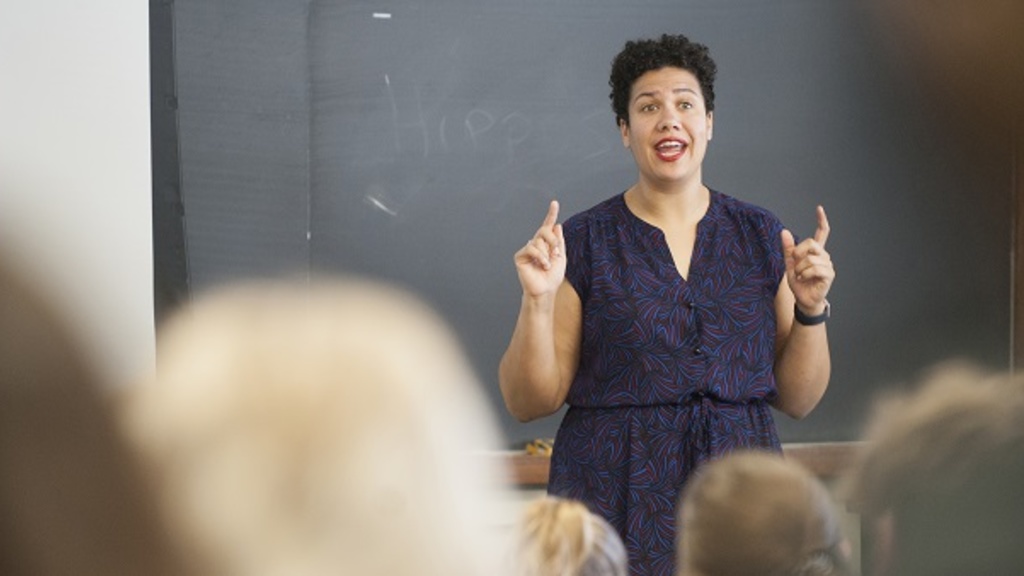
African American Studies Program established
1968On April 9, 1968, University of Iowa President Howard Bowen called for the creation of a $50,000 Martin Luther King scholarship fund to help bring more black students to the University. He later announced to the student body the establishment of an institute of Afro-American Studies. Later, the African American Studies Department was established.
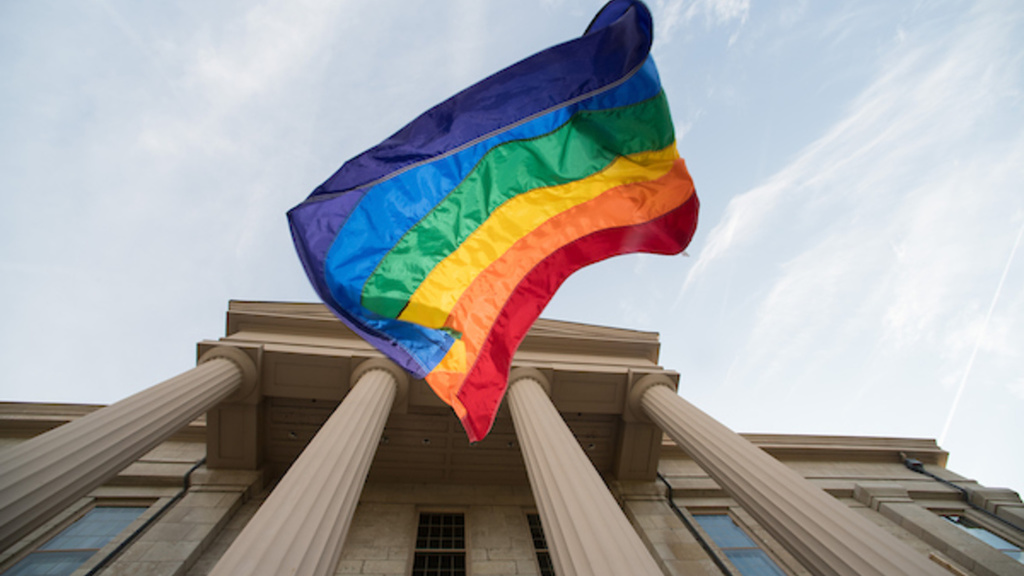
First gay student organization officially recognized at a university in the U.S.
1970The Gay Liberation Front was founded, the first gay student organization officially recognized at a university in the United States.
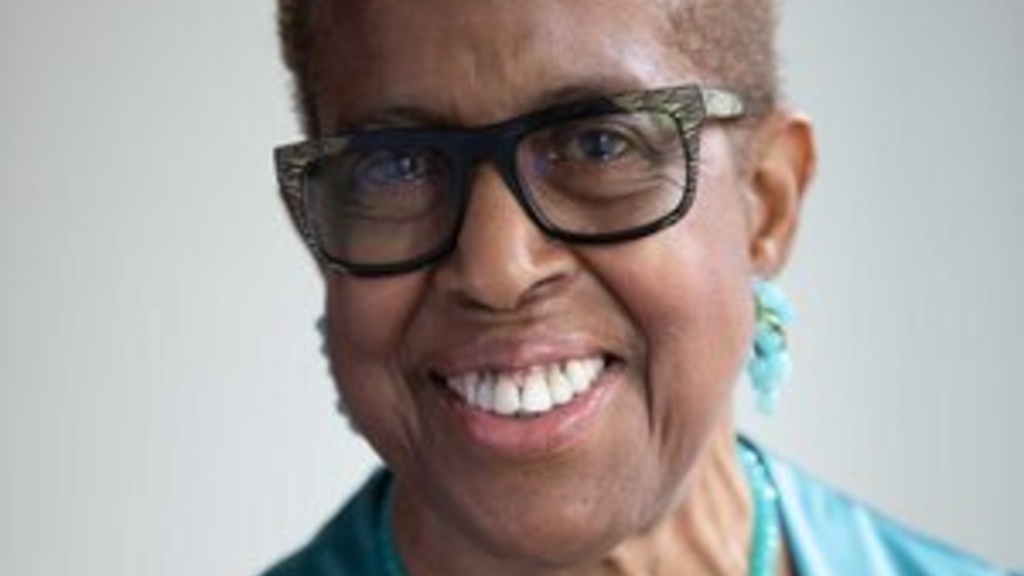
First African-American woman in U.S. and third woman at UI to receive a Ph.D. in chemical engineering.
1971Lilia A. Abron became the first African-American woman in the nation and third woman at the University of Iowa to receive a Ph.D. in chemical engineering.
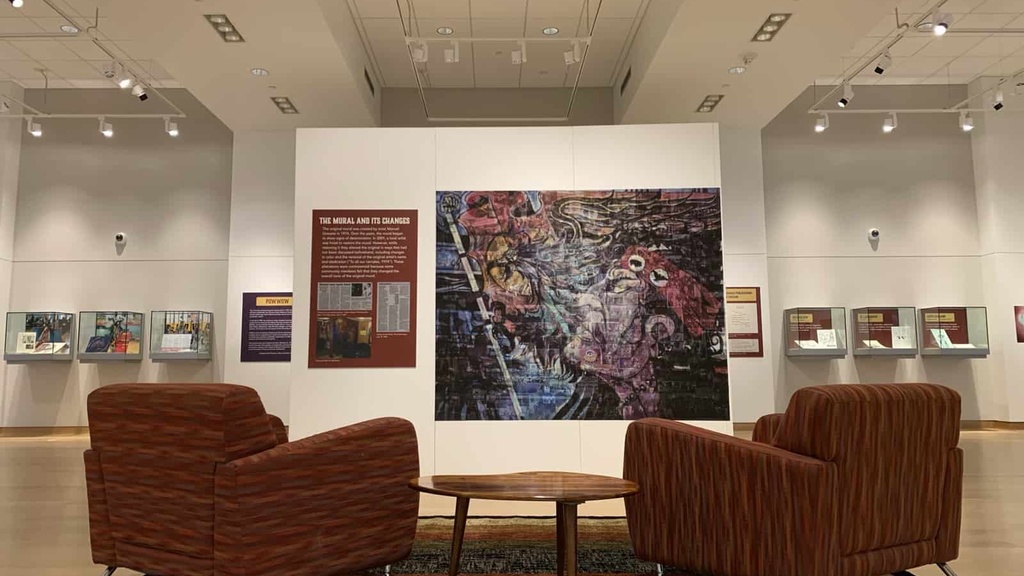
Latino Native American Cultural Center founded
1971Dr. Nancy “Rusty” Barceló, Antionio Zavalla, and Ruth Pushetonequa found the Chicano Indian-American Student Union. It was later renamed to Latino Native American Cultural Center.
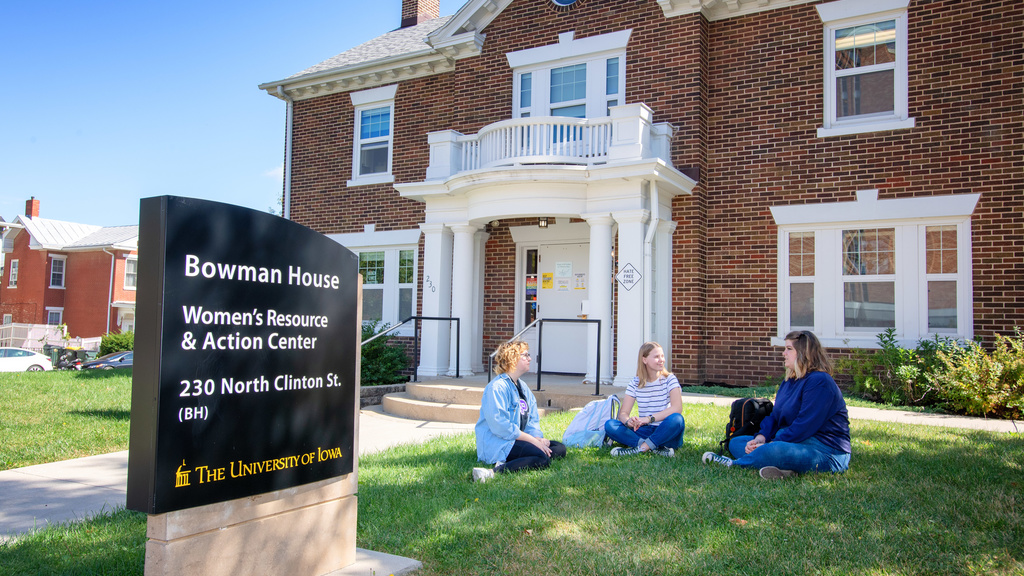
Women’s Resource & Action Center founded
1971In 1971, the Women's Liberation Front was formed. Like many other women in urban centers across the United States, they met to discuss their shared oppression as women and to search for solutions to their common problems. The Women’s Resource & Action Center was later established as a place for them to meet.

Hubbard breaks more barriers
1971In 1971 Hubbard was named Vice President of Student Services, making him the highest-ranking minority in Iowa educational circles. He was the first Black vice president at a Big Ten university. In 1991, Union Park was renamed Hubbard Park as a lasting memorial to him

Ana Mendieta earns her M.F.A in Intermedia from the University of Iowa
1972Ana Mendieta was a renowned performance artist, sculptor, painter, and video artist. In 1972, she earned her M.F.A in Intermedia from the University of Iowa. Previously, she also received both her bachelor's degree and M.A in painting from the University of Iowa. The Gallery Space E260 in Iowa’s Visual Arts Building has been renamed to the “Ana Mendieta Gallery” to honor her.
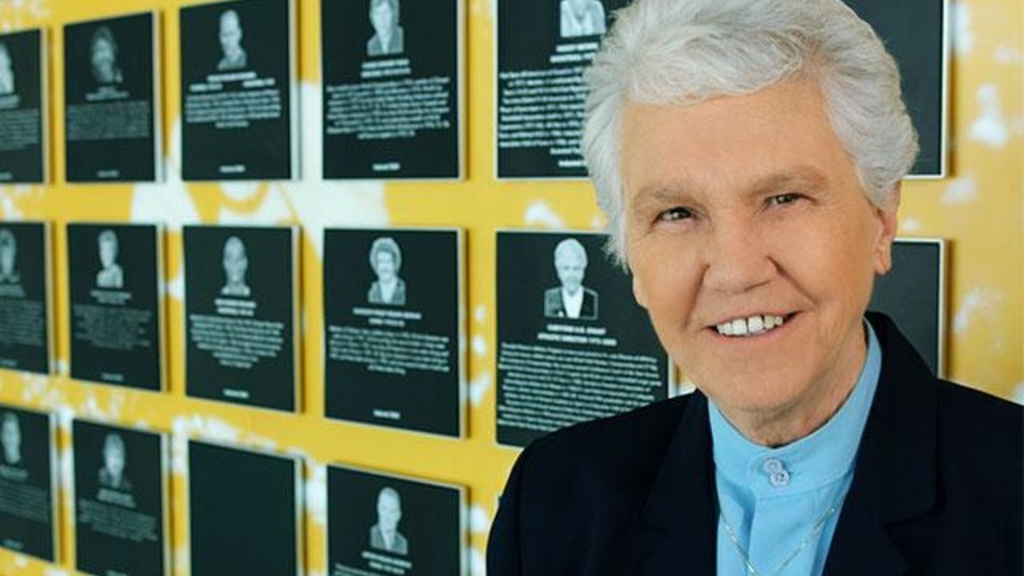
Christine Grant becomes UI's first female athletics director
1973Iowa graduate Christine Grant begins her tenure as the first and only athletic director of the Department of Women’s Athletics, holding the position until her retirement in 2000. She will hold numerous leadership positions as an advocate of gender equity in sports, serve as the president of the Association for Intercollegiate Athletics for Women, testify as an expert witness and advisor in Title IX lawsuits, and receive numerous awards and honors.
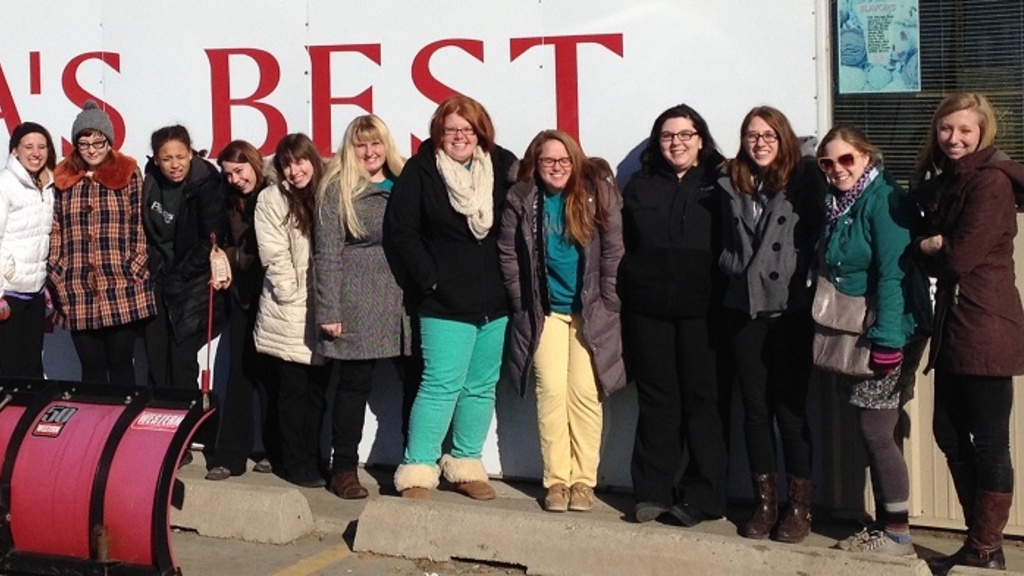
Women’s Studies Program established
1974When Iowa’s Women’s Studies Program was established in 1974, it was one of the first in the nation. Since then, the discipline has evolved and expanded, becoming a multidisciplinary field that includes the study of gender and sexuality.
María Cano Martinez becomes first director of the University of Iowa Hospital & Clinics (UIHC) Interpreter Services program
1975María Cano Martinez served as a volunteer interpreter for UIHC Spanish-speaking patients while employed as a medical secretary at UIHC. Her work laid the foundation for the formal establishment of the UIHC Interpreter Services program in 1975. She served as the program’s first director and the hospital’s first full-time interpreter.
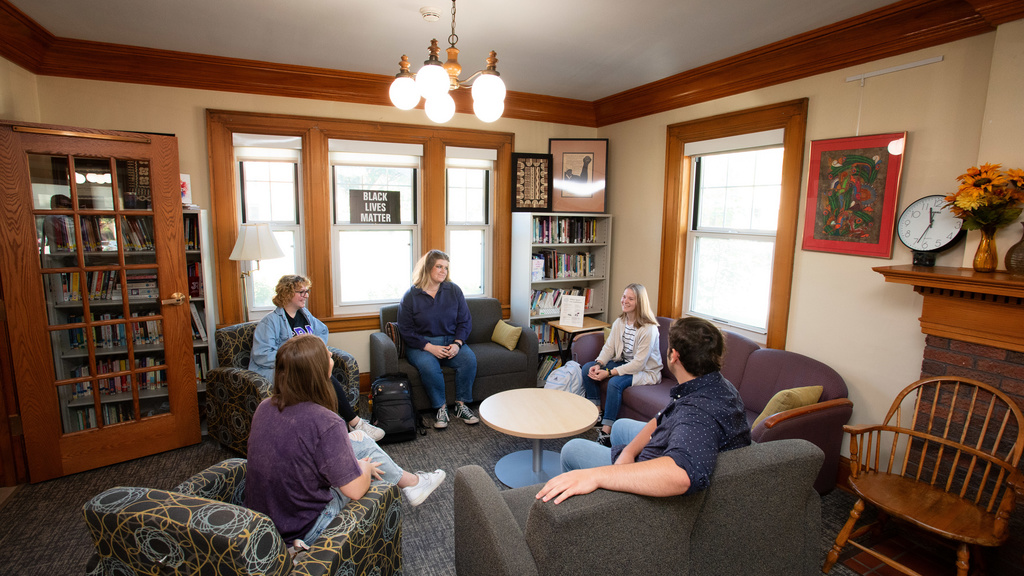
Council on the Status of Women founded
1976The University of Iowa Council on the Status of Women was founded by Vice President for Academic Affairs May Brodbeck following her participation in the International Women's Year program on women's education and employment in 1976. The council consisted of twenty voting members drawn from four distinct components of the University of Iowa community: students, faculty, professional and scientific staff, and merit staff.

Latin American Studies Program established
1978The Latin American Studies Program (LASP) at the University of Iowa is a unique interdisciplinary program of study for undergraduate students. Established in 1978, the program fosters cross-disciplinary teaching and research on Central and South America, Mexico, and the Caribbean.

Sandra Cisneros receives her M.F.A in creative writing from the University of Iowa
1978Sandra Cisneros is an activist, poet, short story writer, novelist, essayist and artist. In 1978, She received her M.F.A in creative writing from the University of Iowa. Her work explores the lives of the working-class and Mexican-American population. She is best known for the novel, The House on Mango Street. Throughout her career she has received numerous awards including NEA fellowships in both poetry and prose, the Texas Medal of the Arts, a MacArthur Fellowship, several honorary degrees, national and international book awards, Chicago's Fifth Star Award, the PEN Center USA Literary Award, and the National Medal of Arts presented to her by then-President Barack Obama at the White House.
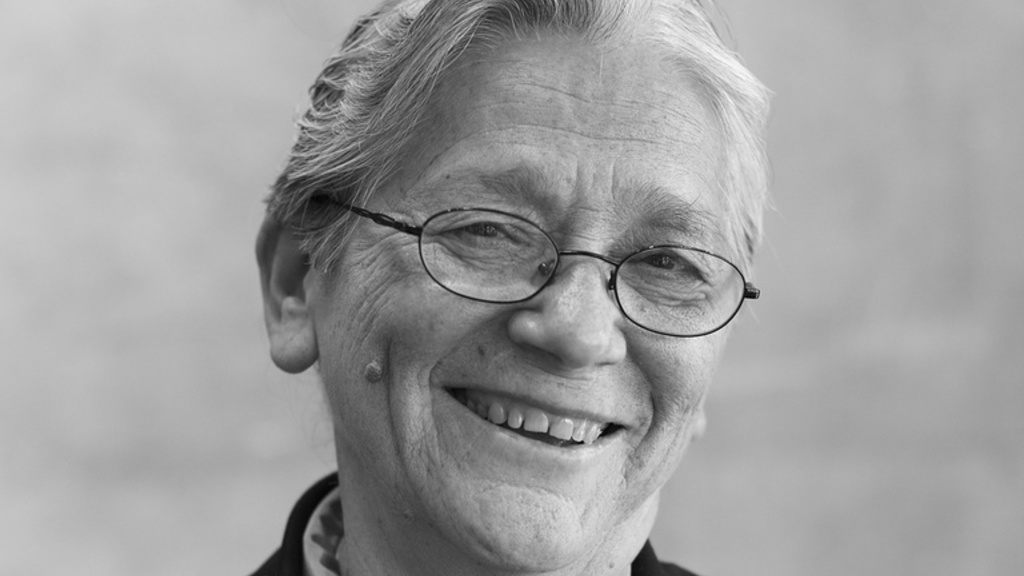
Dr. Nancy “Rusty” Barceló becomes the first Chicana to receive a doctorate from the University of Iowa
1980In 1980, Dr. Nancy “Rusty” Barceló earned her doctorate degree, becoming the first Chicana to receive a doctorate from the University of Iowa. Following her graduation, Barceló was hired by the University of Iowa, where she served as Acting Director of Affirmative Action (1982-1983), Director of Summer Session (1981-1987), Associate Director, Opportunity at Iowa, (1987-1994), Assistant Dean (1981-1995) and Assistant Provost, and Opportunity at Iowa (1995-1996). Barceló is credited as the moving force behind the National Initiative for Women in Higher Education (NIWHE).
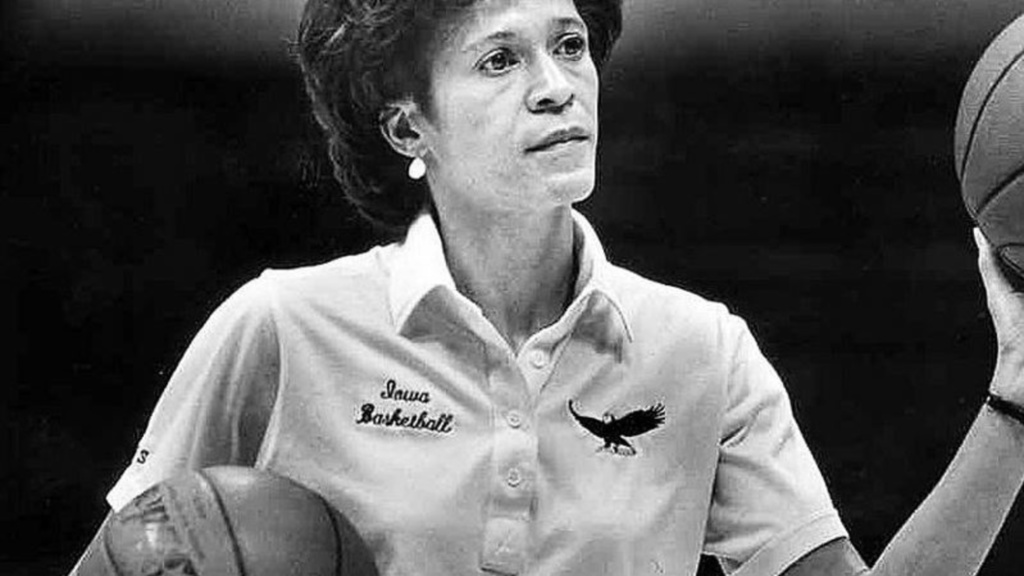
First African-American to coach a Big Ten women’s basketball team
1983C. Vivian Stringer became the first African-American to coach a Big Ten women’s basketball team.
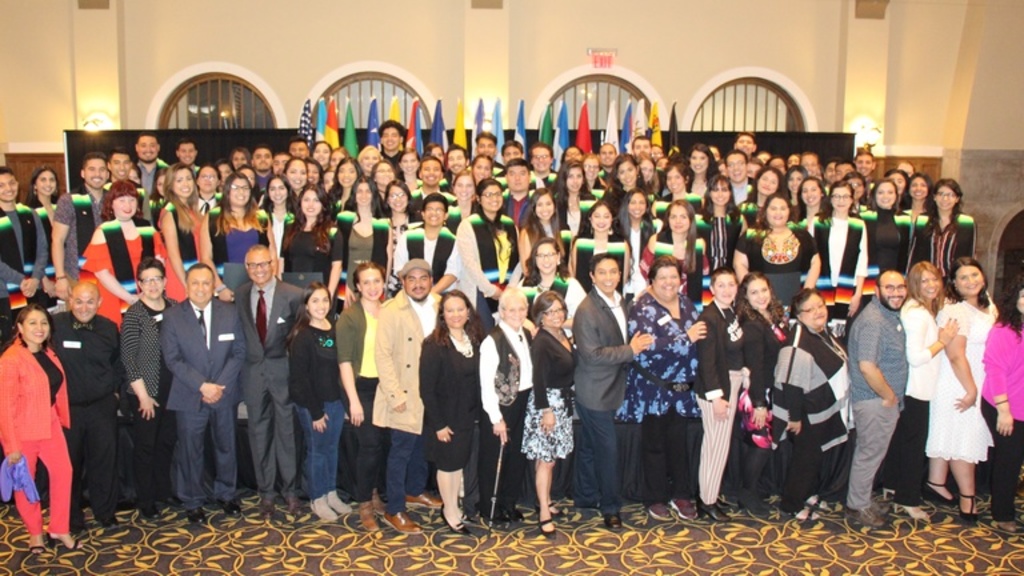
The University of Iowa Latinx Council established
1989The University of Iowa Latinx Council (formerly, Latino Council and the Council on the Status of Latinos) was established in the Fall of 1989 by a group of Latinx faculty and staff in response to issues raised by their constituencies who historically have been underrepresented in institutions of higher education.
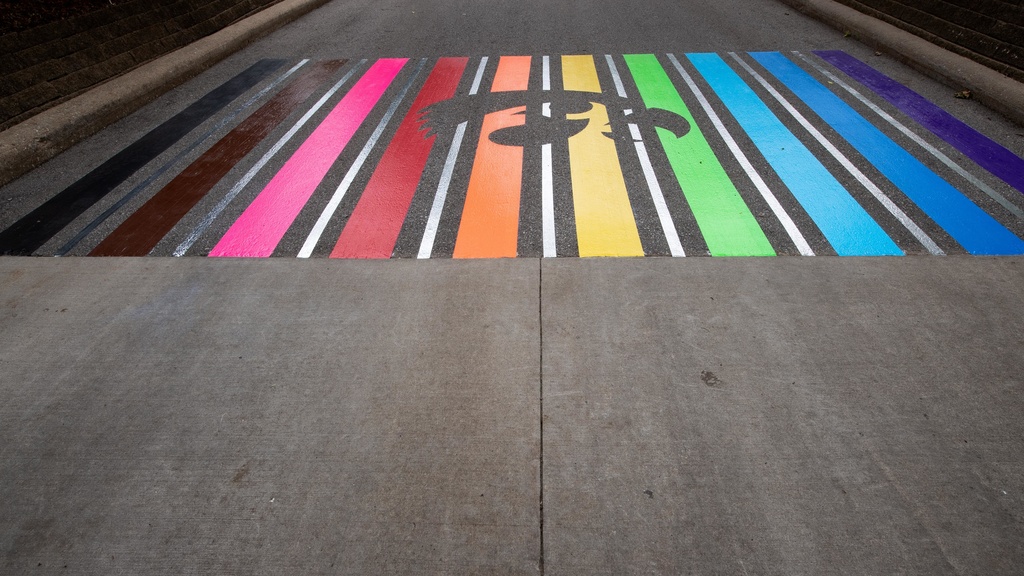
UI Lesbian, Gay, Bisexual, Transgender, Queer Staff & Faculty Association founded
1990The University of Iowa LGBTQ+ Council was organized in 1990 to support the interests of the lesbian, gay, bisexual, transgender, and queer campus community.
Iowa Women’s Archives opens
1992Iowa Women’s Archives opens. It hosts the Giving our History a Home: A Celebration of African American Women in Iowa project (est in 1995), Rural Women’s Project (est. in 1998), and the Mujeres Latinas Project (est. in 2005). Iowa Women's Archives can be found in the Main Library.
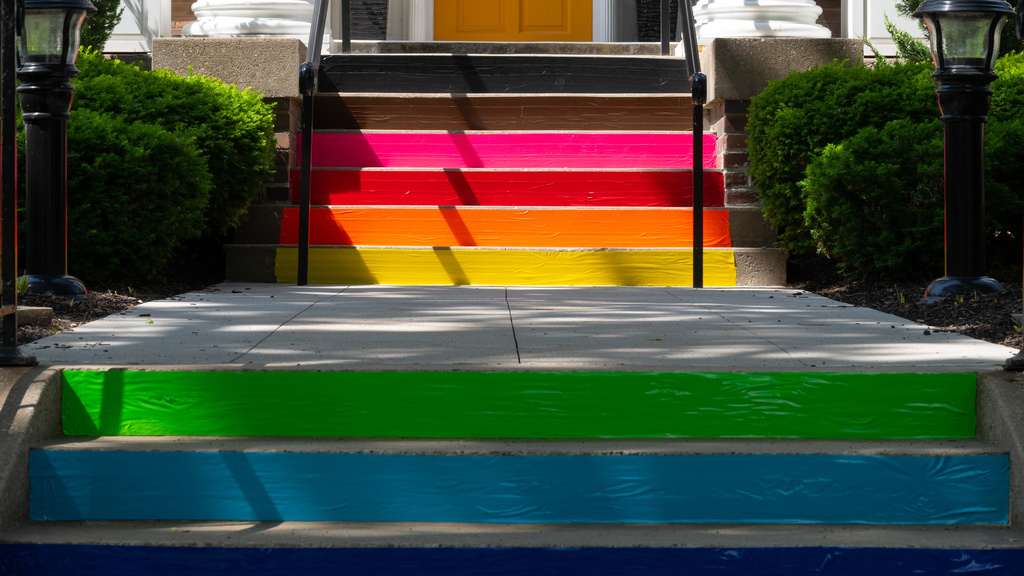
First public university to offer insurance to employee domestic partners
1992The University of Iowa becomes the first public university to provide benefit coverage to domestic partners of employees.
The American Indian and Native Studies Program founded
1993The American Indian and Native Studies Program, now NAIS, was established in 1993 with the three-credit course “Introduction to American Indian and Native Studies.” Faculty and guests from American Studies, Anthropology, and Law team taught the popular undergraduate course.
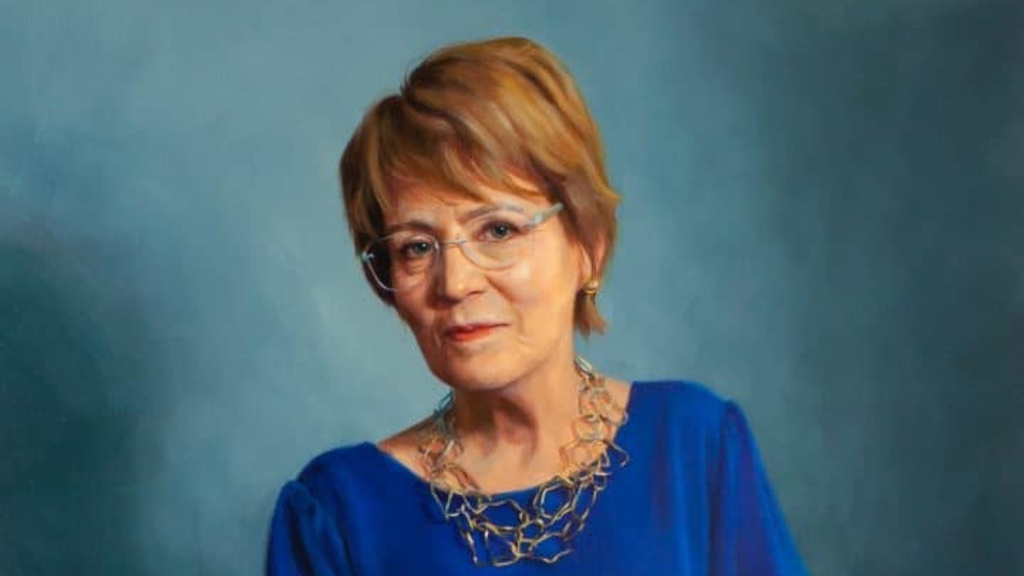
Mary Sue Coleman first female UI President
1995The first woman to serve as president of the University of Iowa, Mary Sue Coleman was a leading advocate of expanded research opportunities. At a time of state budgetary challenges, her seven-year tenure saw the institution’s research budget and its annual general fund-raising nearly double in size.
A biochemist, Coleman earned her bachelor’s degree in chemistry at Grinnell College and her Ph.D. in biochemistry at the University of North Carolina. Before coming to Iowa, she was a member of the faculty at the University of Kentucky, and later held academic positions at the University of North Carolina and the University of New Mexico. She became president of the University of Michigan in 2002, retiring in 2014. In 2015 she was appointed to the University of Denver Board of Trustees and, in 2016, became president of the Association of American Universities.
First university to add gender identity to its nondiscrimination policy
1996The University of Iowa adds gender identity to its nondiscrimination policy, making it the first university to do so.
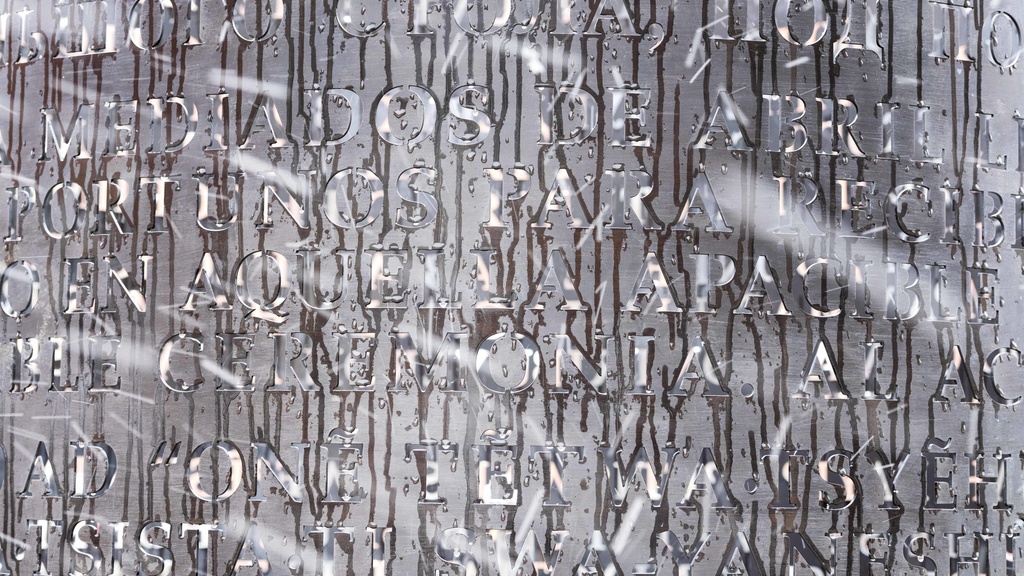
University of Iowa Center for Human Rights
1999Two professors establish the University of Iowa Center for Human Rights to promote and protect human rights through research, education, and public service.
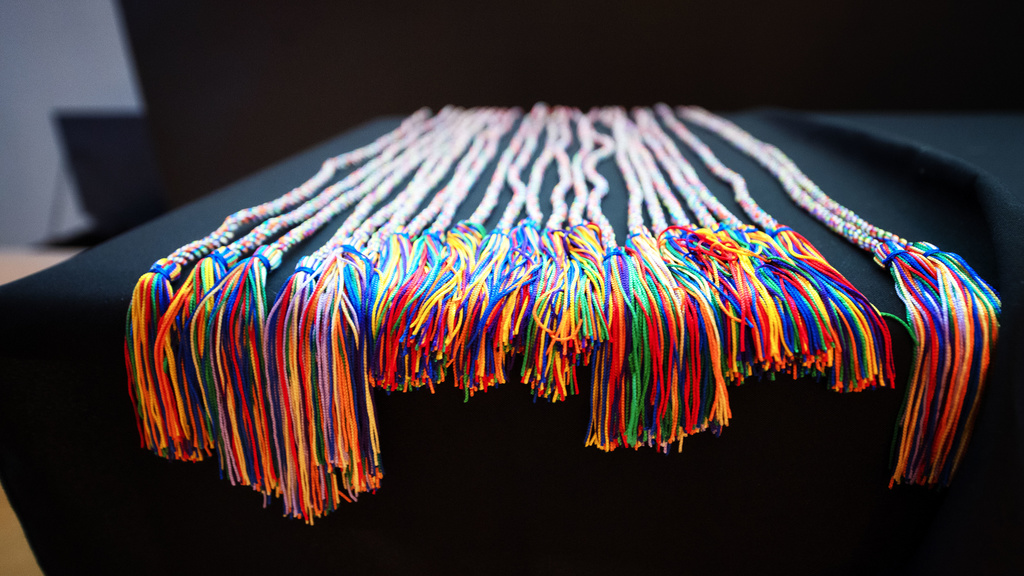
First Rainbow Graduation celebration
2000The University of Iowa offers the first Rainbow Graduation to celebrate the achievements of LGBTQ graduates and their allies.
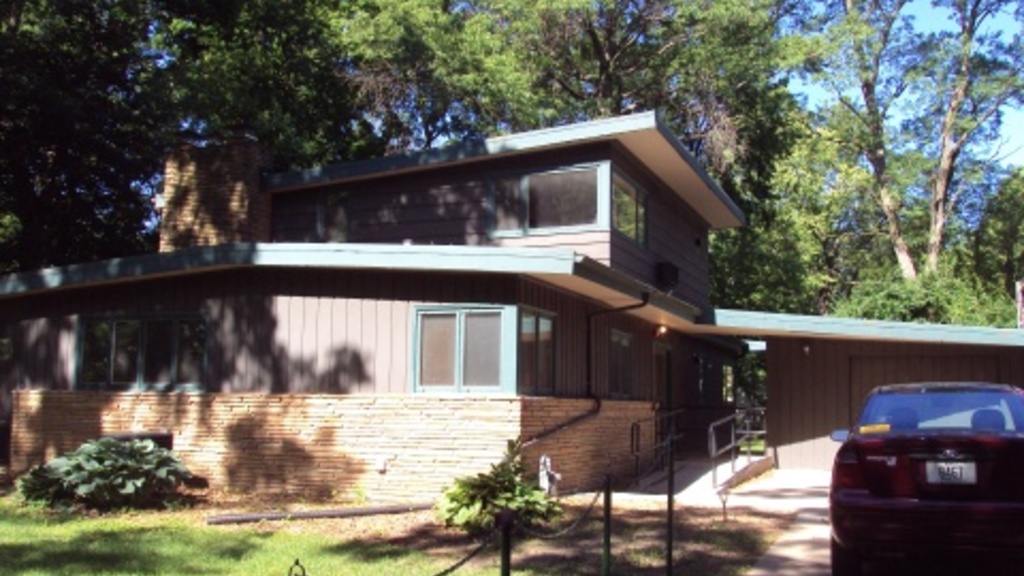
Asian Pacific American Cultural Center founded
2003The Asian Pacific American Cultural Center (APACC) was established in 2003 to serve as a center for Asian American and Pacific Islanders at The University of Iowa to have a space to interact with other students and enhance their educational experience at The University of Iowa.
First African American student Daily Iowan editor-in-chief
2004UI senior Tony Robinson, a journalism major from Davenport, Iowa, became the first African American student to be the editor-in-chief of The Daily Iowan in 2004.
Rose Vasquez appointed to Board of Regents
2004UI alumnus Rose Vasquez of Des Moines was appointed to the Board of Regents, the State of Iowa the governing board of Iowa's three public universities, including the University of Iowa.
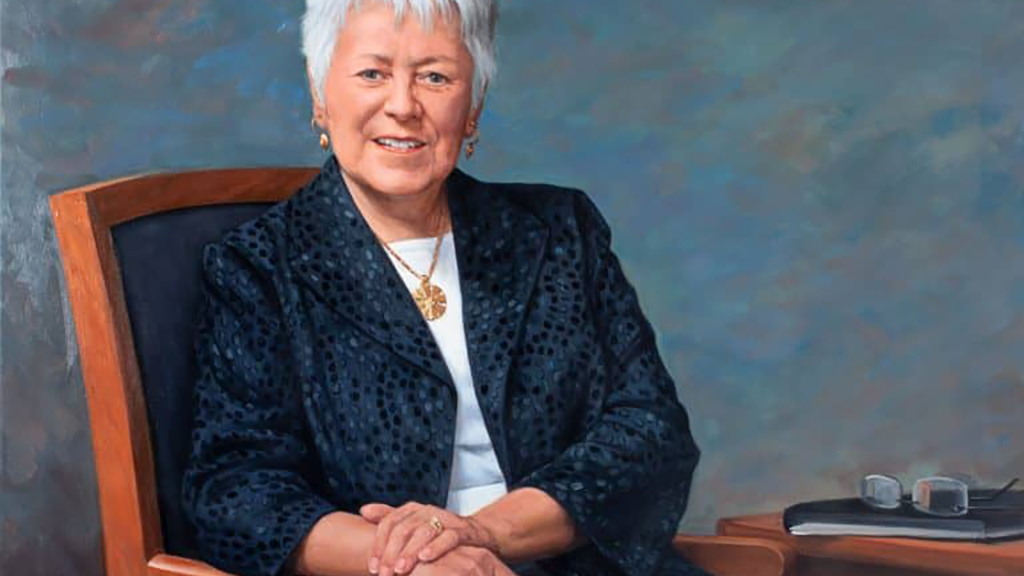
President Sally Kay Mason
2007Historic flooding struck the University of Iowa campus in 2008, less than one year after Sally Mason assumed the presidency. During her tenure, the campus underwent extensive replacement of facilities, including Hancher Auditorium, the School of Music, and the School of Art and Art History. A new children’s hospital and biomedical research center were also significant additions.
Mason received a bachelor of arts degree in zoology from the University of Kentucky in 1972 and, two years later, earned a master of science degree from Purdue University. In 1978 she was awarded a Ph.D. in cellular, molecular, and developmental biology from the University of Arizona. She was an associate dean at the University of Kansas and served as the provost of Purdue University before coming to Iowa.
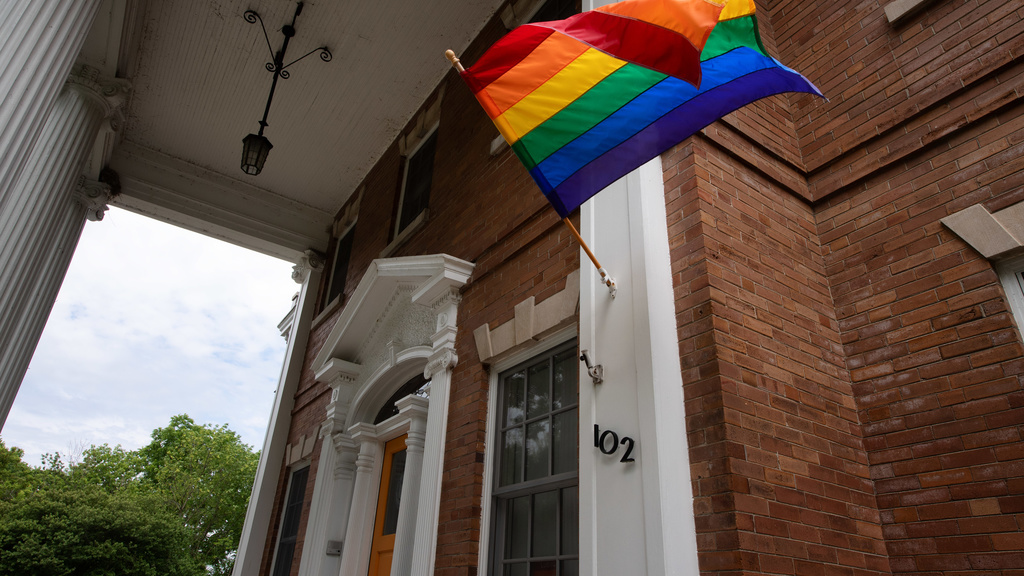
Lesbian, Gay, Bisexual, Transgender, and Queer Resource Center founded
2006The Executive Board of the UI Gay, Lesbian, Transgender & Allied Union (GLBTAU) met with the University administration to discuss the possibility of securing a Center for the LGBTQ community. The Pride House (then named Lesbian Gay Bisexual Transgender Resource Center) opened its doors in Fall 2006 as a space to interact with other LGBTQ students and enhance student educational experience at the University of Iowa.

Multicultural Greek Council was officially established
2010Members of Sigma Lambda Beta and Sigma Lambda Gamma began work on the creation of the fourth governing greek council at Iowa. In 2010, the Multicultural Greek Council (MGC) was officially established.
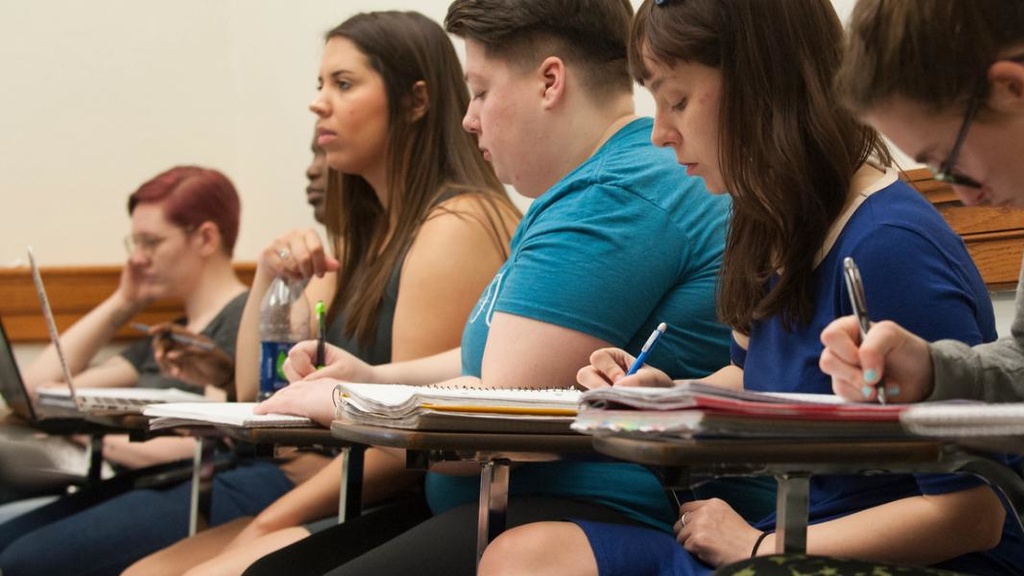
Gender, Women’s and Sexuality Studies Department established
2010The Iowa State Board of Regents approved uniting the Women's Studies Department with the existing Sexuality Studies Program, creating the Gender, Women's, and Sexuality Studies Department.

First public university include gender and sexuality questions on applications
2012The University of Iowa becomes the first public university to include optional questions about sexual orientation and gender identity on its admission application.
In 2021, The University of Iowa continued this work by adjusting the question that asks about parent/guardian level of education to be more inclusive. The revised question now lists the parent/guardian options in a drop-down format, making it possible for students to select more than one mother or father and then note their level of education.

UI Health Care opens the state’s first medical clinic that focuses on the LGBTQ community.
2012UI Health Care opens the state’s first medical clinic that focuses on the LGBTQ community. Every member of their clinic staff has had LGBTQ-specific cultural humility training by utilizing the Safe Zone Project.
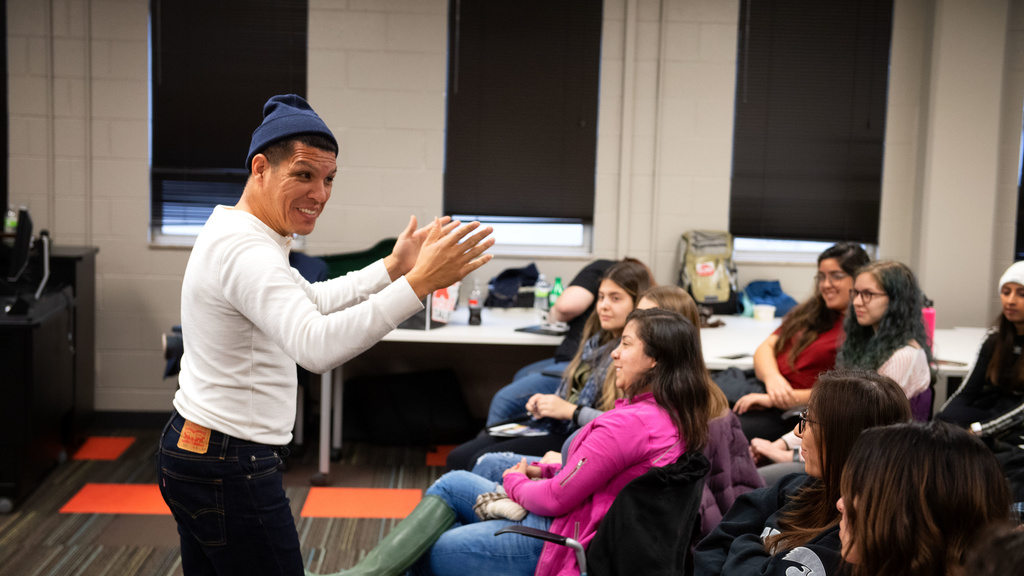
Latina/o/x Studies Minor founded
2015In consultation with Latina/o/x students, faculty from across campus come together to develop an interdisciplinary minor in Latina/o/x Studies. The minor was offered for the first time in 2015 and has been successful in offering innovative teaching and experiential learning experiences.
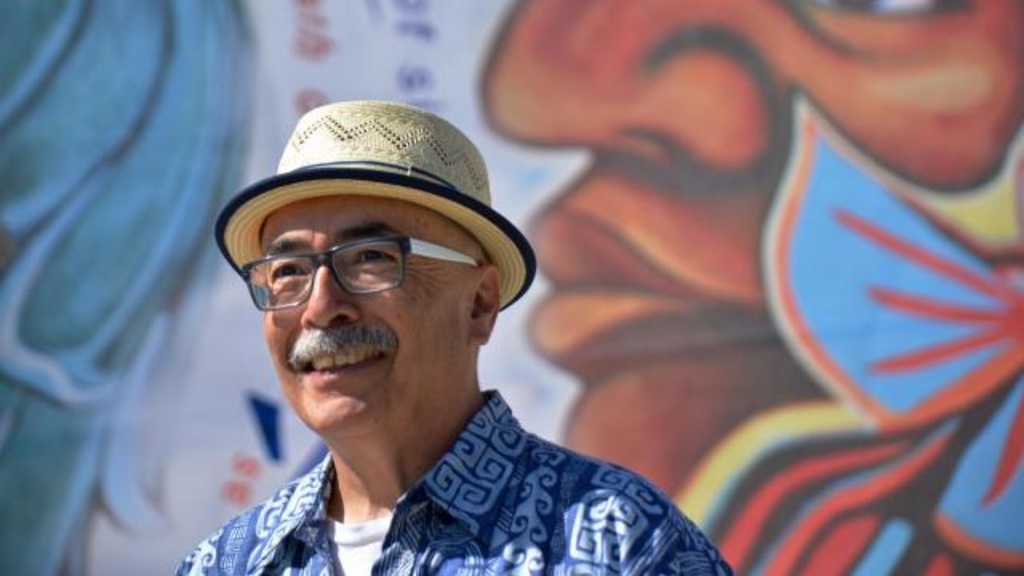
Iowa alumni Juan Felipe Herrera appointed as the 21st Poet Laureate Consultant in Poetry to the Library of Congress
2015The Library of Congress appoints Juan Felipe Herrera as the 21st Poet Laureate Consultant in Poetry. He held this position from 2015-2017 and was the first Mexican-American to serve in the position. He received his M.F.A in creative writing from the University of Iowa.
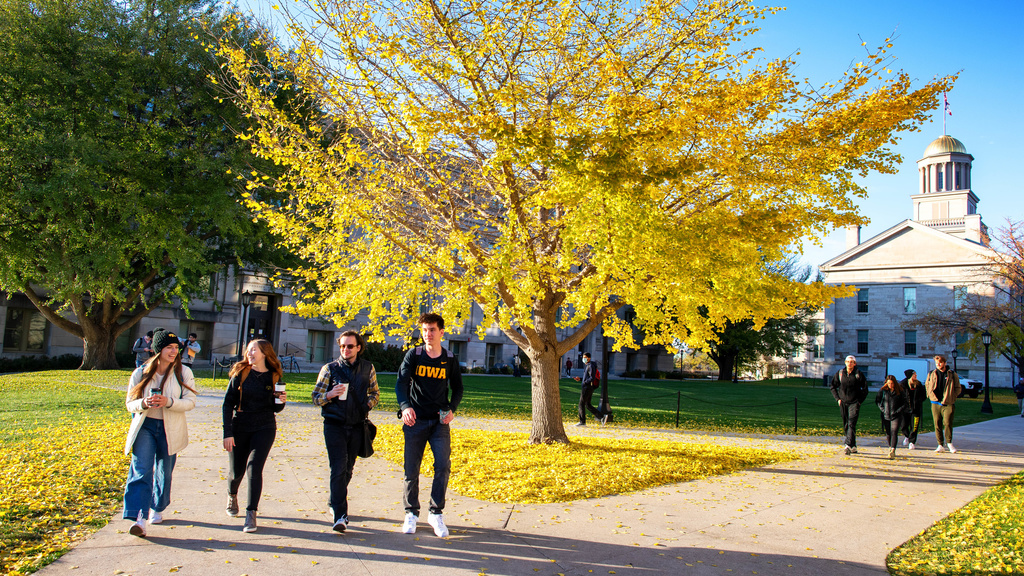
One of first universities to ask students for their preferred names and pronouns
2016The UI becomes one of the first universities in the nation to ask students for their preferred names and pronouns of reference and to offer a third gender option.

Catlett Hall honors Elizabeth Catlett
2017Catlett Residence Hall opens, named for Iowa graduate and renowned artist Elizabeth Catlett, one of the first three MFA recipients at the University of Iowa and the first African American to earn the degree.
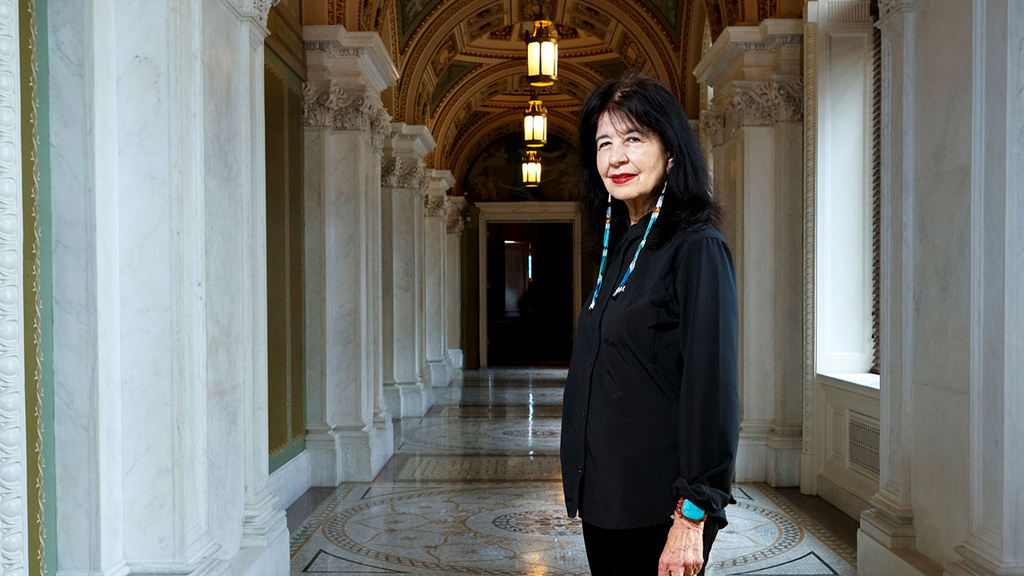
Iowa alumni Joy Harjo appointed as the 23rd Poet Laureate Consultant in Poetry to the Library of Congress
2019The Library of Congress appoints Joy Harjo as the 23rd Poet Laureate Consultant in Poetry. She is the first Native American to serve in the position. In 1978, she graduated from the University of Iowa with a M.F.A in creative writing.
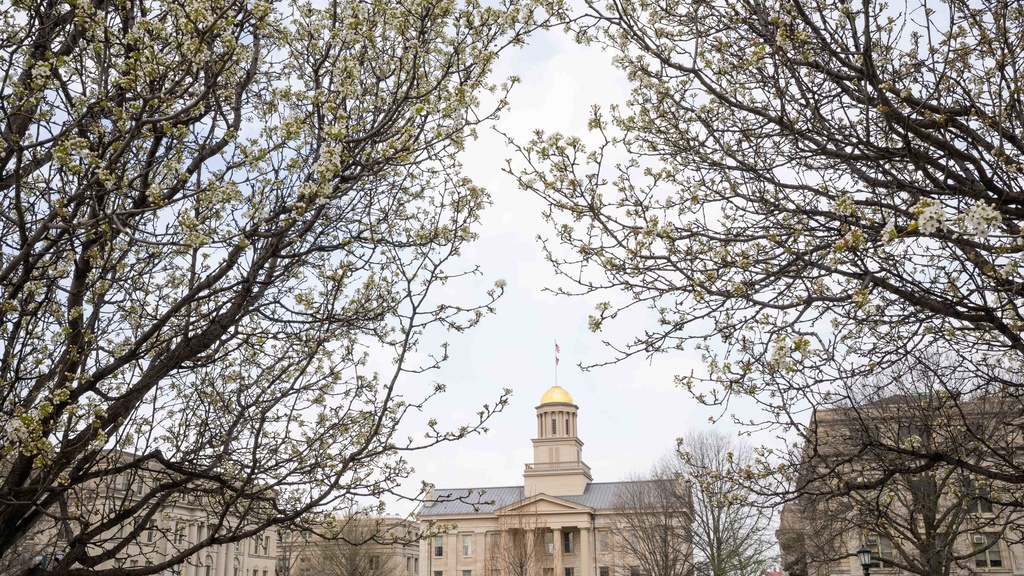
The Pan Asian Council established
2019The Pan Asian Council was established in Fall 2019 by a group of faculty, staff, and graduate students in response to issues raised by their constituencies who historically have been underrepresented in institutions of higher education. It is one of the newest councils created to serve and advocate for the Asian Community on campus.

Iowa names Duke Slater Field at Kinnick Stadium
2021The University of Iowa Athletics Department announced Wednesday the naming of Duke Slater Field at Kinnick Stadium. The naming was approved by the Board of Regents, State of Iowa.
Slater, a 6-foot-2, 210-pound tackle for the Hawkeyes from 1918-21, was the first Black student-athlete in school history to earn All-America honors. A three-time first-team All-Big Ten selection, Slater competed in football and track and field for the Hawkeyes. Iowa had a 7-0 Big Ten record in 1921 to claim the conference title and was named by more than one media outlet as national champion.
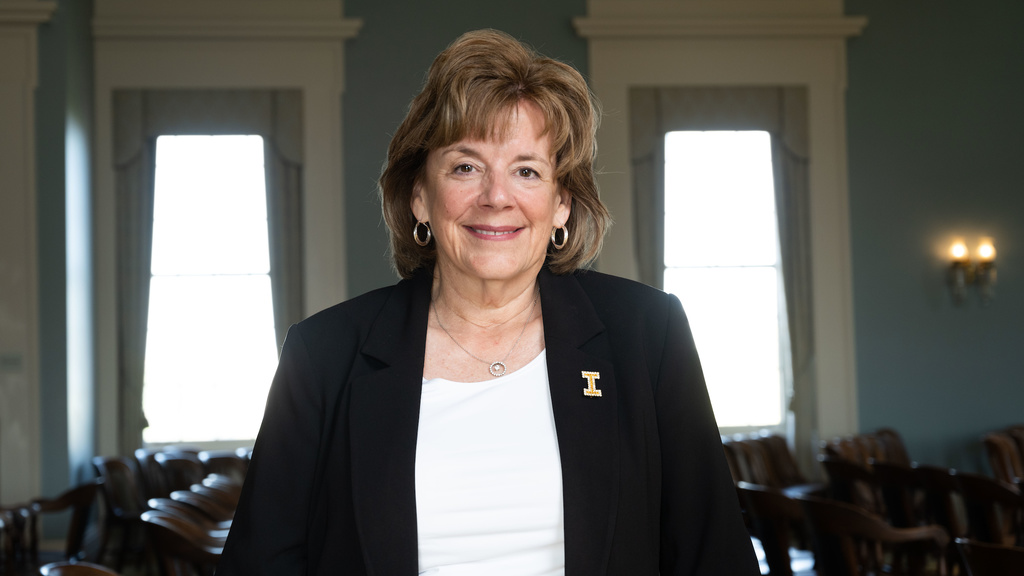
Barbara J. Wilson named Iowa’s next leader
2021The Board of Regents, State of Iowa, announces Barbara J. Wilson as the 22nd president of the University of Iowa.
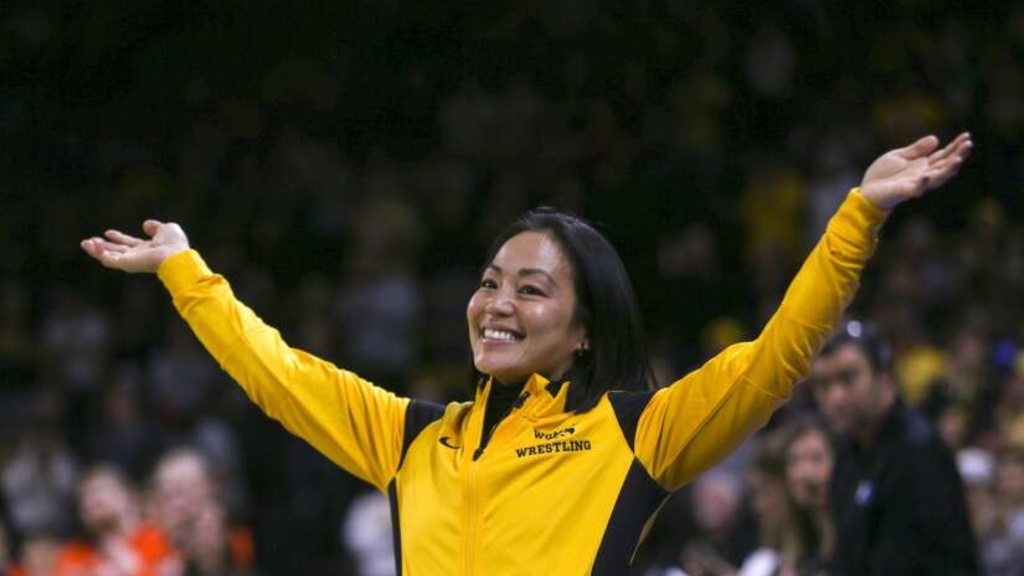
Iowa First Power 5 Institution to add Women's Wrestling
2021The University of Iowa Athletics Department is adding women’s wrestling as an intercollegiate program, becoming the first NCAA Division I, Power Five conference institution to offer the sport.
“This is an exciting day for the university, our department and the sport of women’s wrestling,” said Gary Barta, the Henry B. and Patricia B. Tippie Director of Athletics Chair. “Our wrestling history and success makes this a perfect fit. We are confident that at Iowa, our women’s wrestling student-athletes will have the opportunity to compete at the highest level athletically and academically.”

The University of Iowa's Path Forward
2024The path forward for the new Division of Access, Opportunity, and Diversity is laid out for us in the plan developed by the UI Task Force to meet the Iowa Board of Regents 10 directives on diversity, equity, and inclusion. The central division will be renamed; it will shift to a leaner operation and its focus will change to educating the skill sets needed for cultural and global understanding. The division will also provide services and resources to maintain access to higher education.
The newly named Division of Access, Opportunity, and Diversity ensures that the University of Iowa complies with state and federal civil rights laws. It also administers federally funded programs like TRIO and supports university efforts to meet diversity-related accreditation criteria necessary to accomplish its mission.
